f.eks. is
a roaming exhibition platform for contemporary art that seeks to generate
critical and speculative dialogues between audiences, artists, and broader
publics. f.eks. produces temporary art events that are
located in and around the urban spaces of Aalborg and the Northern Jutland region – activating architecture,
infrastructure, ecological sites, and public spaces through a series of live
art engagements. These include
performances, talks, workshops, readings, pop-ups, social installations,
screenings, and many other forms of interactive and ephemeral art making.
f.eks. is an award-winning, non-profit organization supported by the Danish Arts Foundation, Den Jyske Kunstfond, Augustinus Fonden, Det Obelske Familiefond, Ny Carlsbergfondet, William Demant Fonden, Dansk Tennis Fond, Region Nordjylland, 15. Juni Fonden, Aalborg Kommune, UMMK, and Himmerland Boligforening as part of an ongoing artist-initiated program.
f.eks. is an award-winning, non-profit organization supported by the Danish Arts Foundation, Den Jyske Kunstfond, Augustinus Fonden, Det Obelske Familiefond, Ny Carlsbergfondet, William Demant Fonden, Dansk Tennis Fond, Region Nordjylland, 15. Juni Fonden, Aalborg Kommune, UMMK, and Himmerland Boligforening as part of an ongoing artist-initiated program.
S for Sound, S for Solidarity:
“Listening & Walking”
Featuring Hannibal Andersen (DK) & Verdensrommet (NO)
“Listening & Walking”
Featuring Hannibal Andersen (DK) & Verdensrommet (NO)
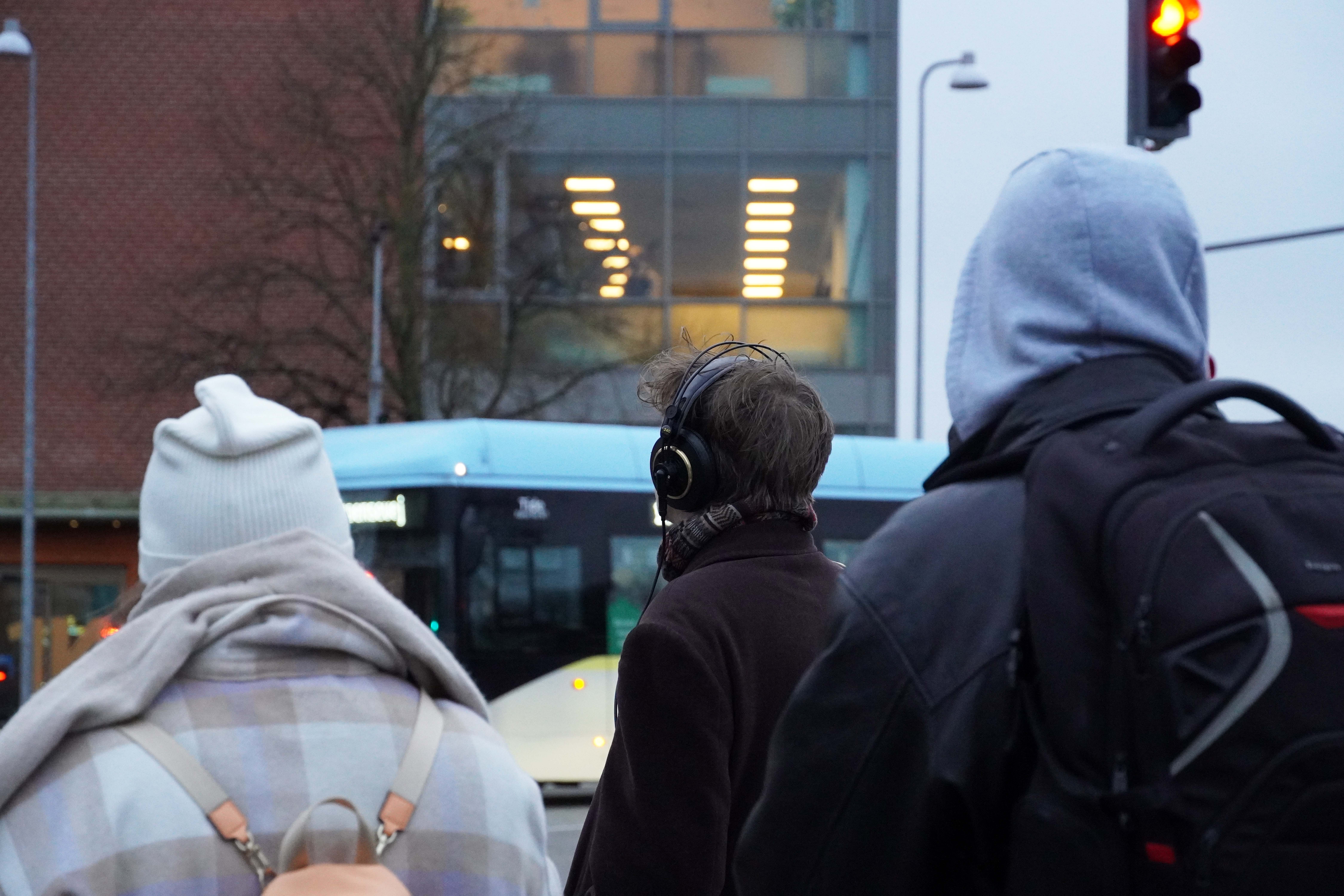
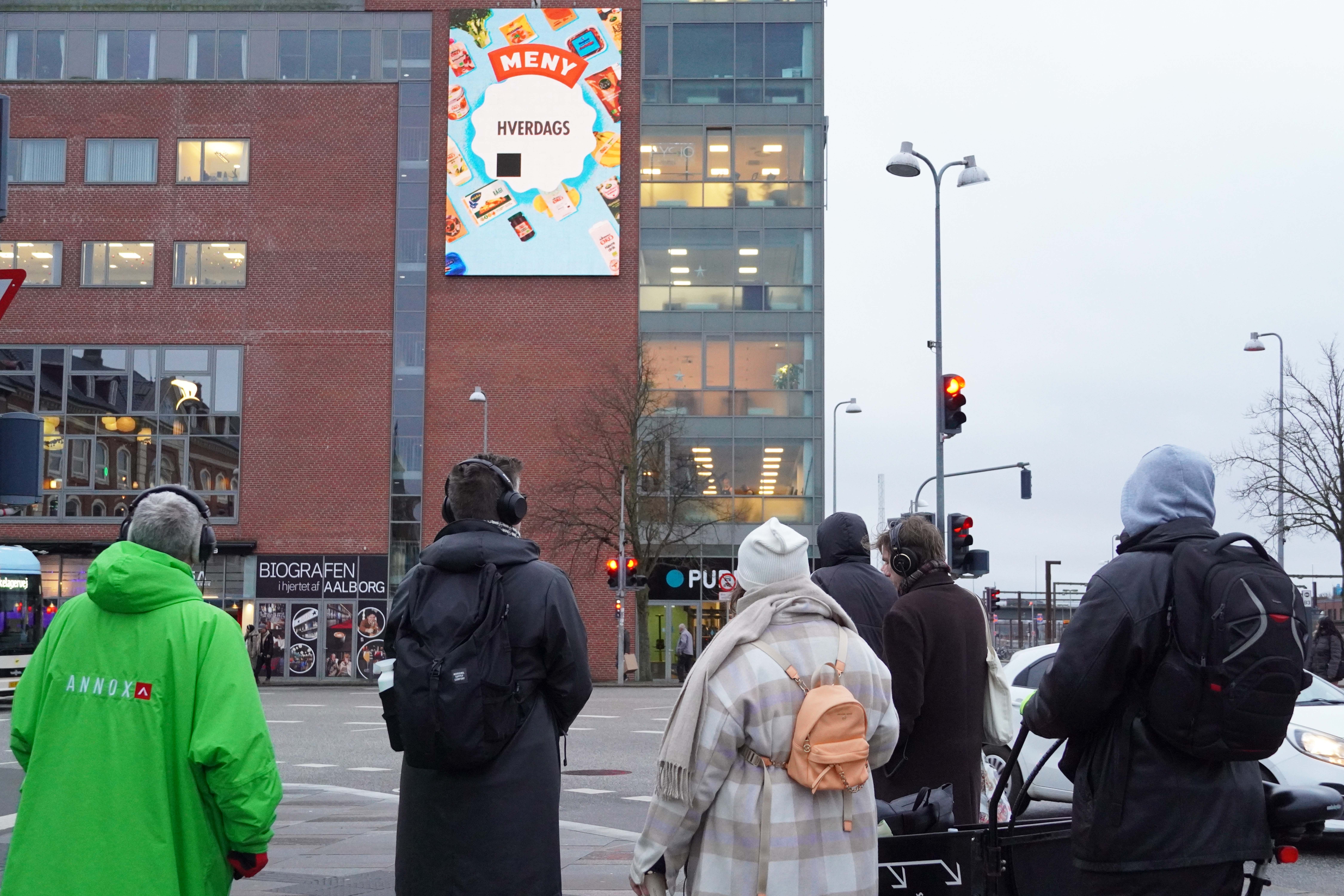

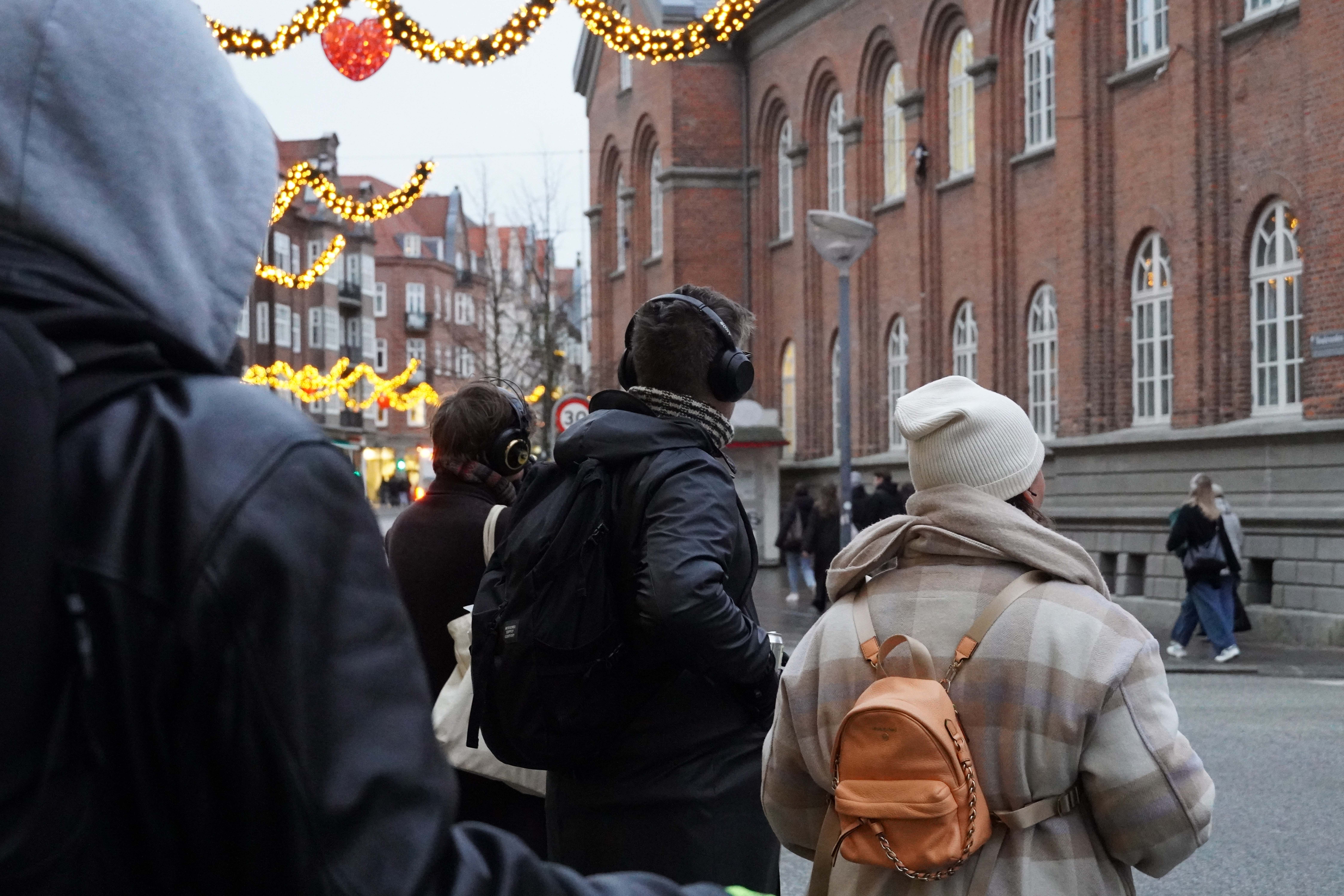
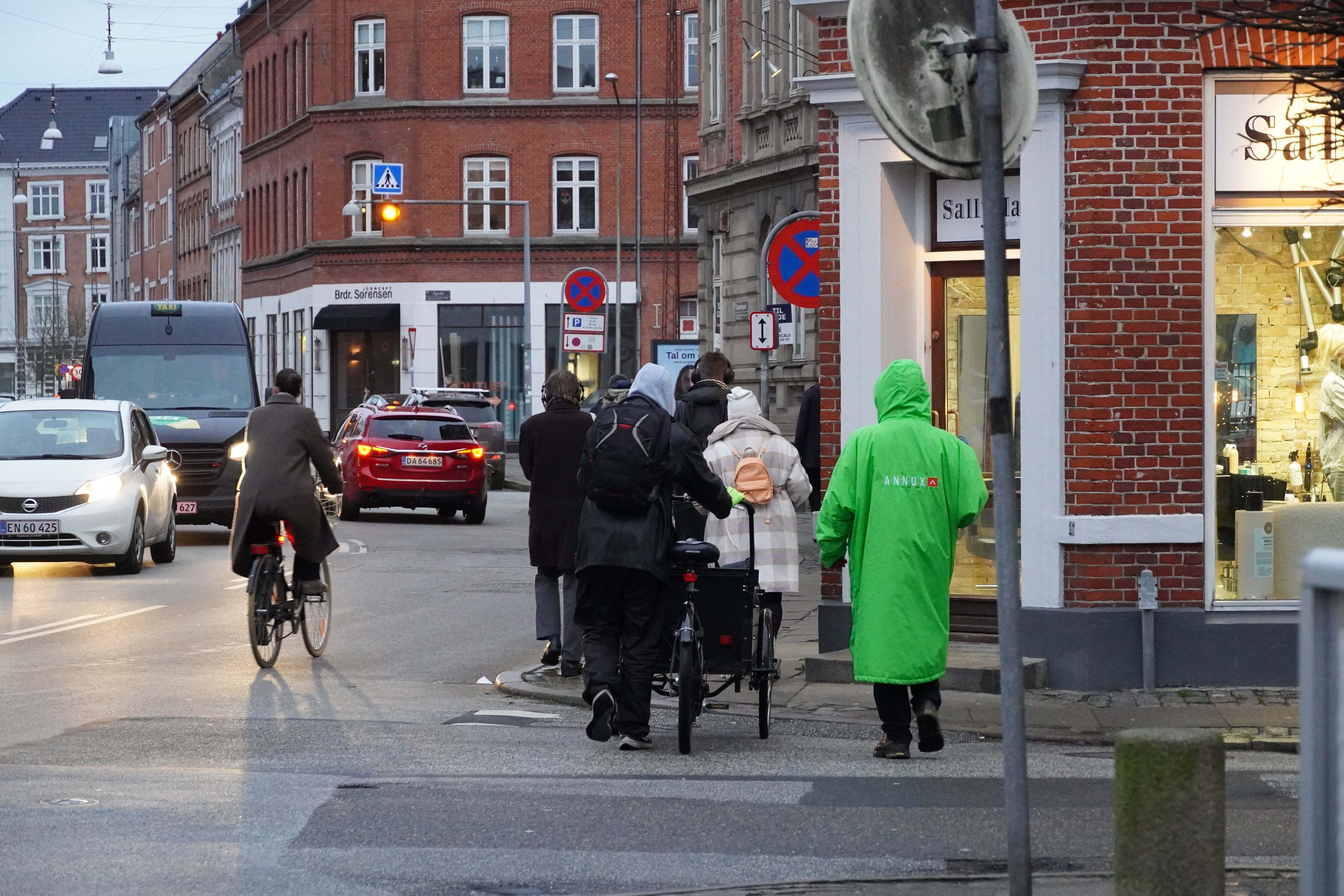
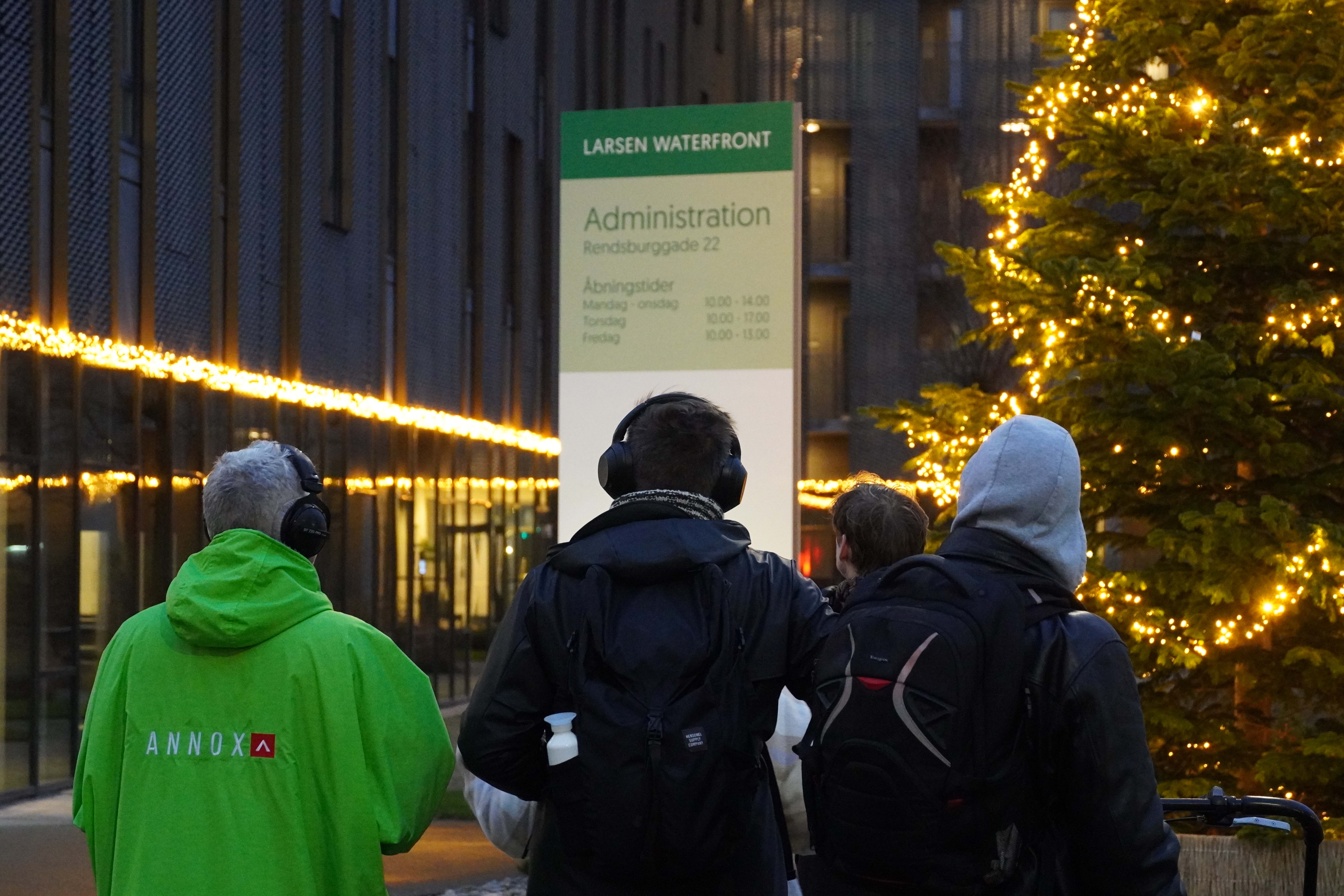


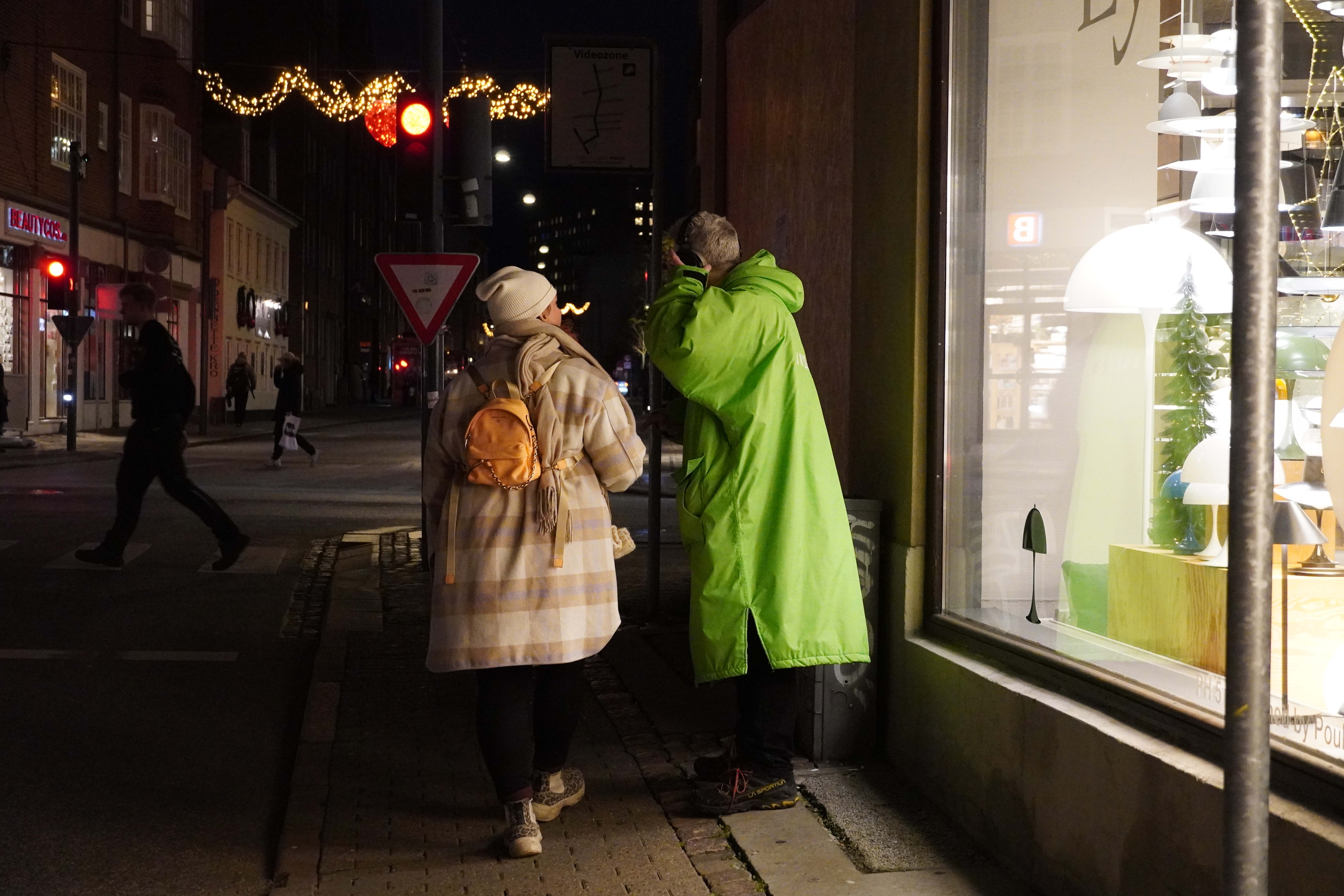


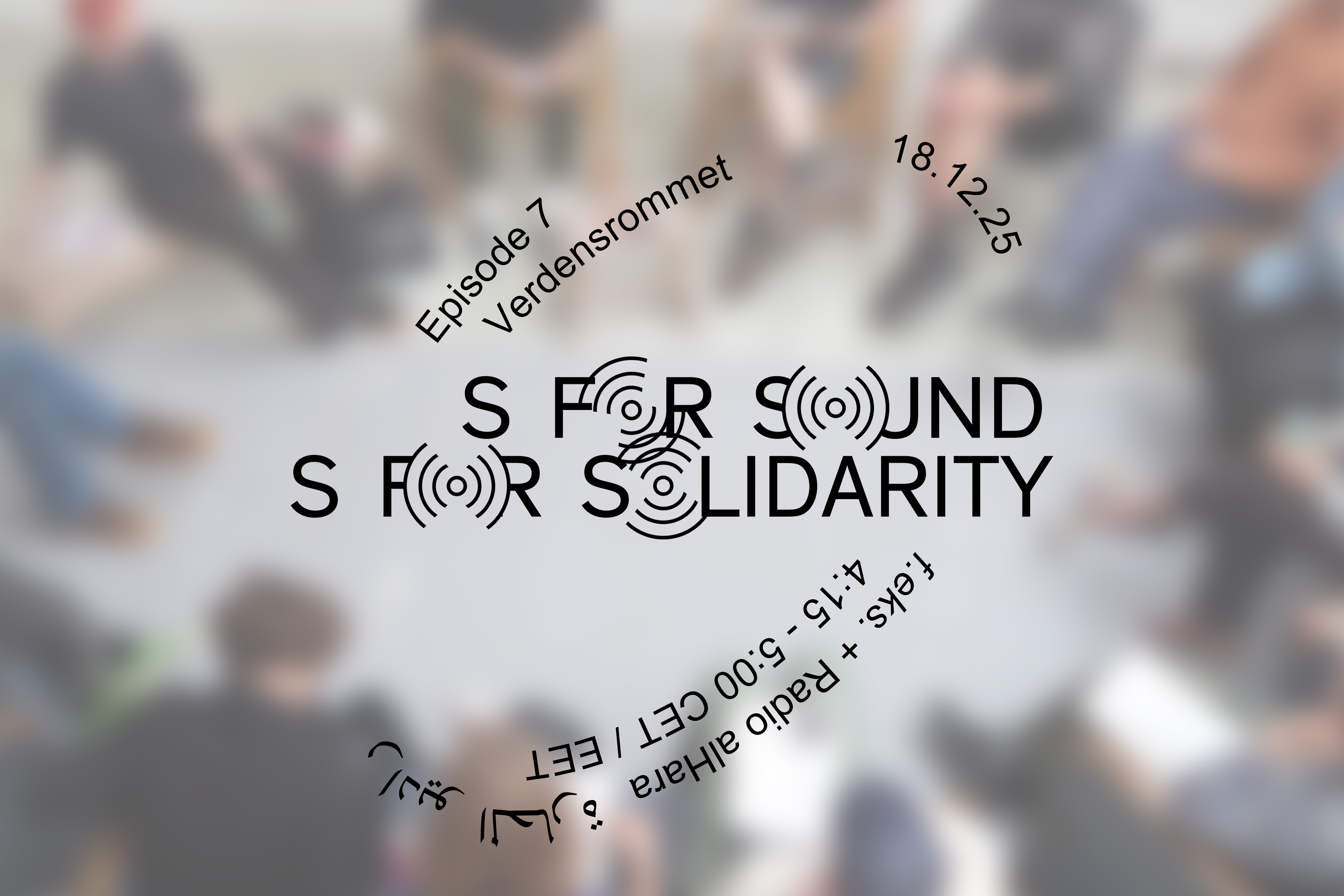
S for Sound, S for Solidarity: Listening & Walking is a site-specific guided listening walk through Aalborg, where we collectively listen to a double feature of the two new episodes of S for Sound, S for Solidarity - episode 6 with Hannibal Andersen and episode 7 with Verdensrommet as they are premiering on Radio alHara.
With a starting point in Andersen’s public art project “Everything Must Go (Alt Skal Væk)” that took place in Aalborg in 2022, and following up on his ongoing practice incorporating critical gamification in New York, to creating experimental playground environments in Copenhagen, the sixth episode traces intriguing and lesser known trajectories across Andersen’s recent practice. A red thread running through the conversation with Andersen in Episode 6 is art’s role in rethinking ownership and property relations, especially in relation to affordable housing and reconsidering the economics and accessibility of the built environment across local and international contexts.
In the seventh episode members from the experimental, non-profit art organization Verdensrommet unpack their positions within the institution and network for non-EU immigrant artists and creatives in Norway. In connecting a conversation between the peripheral contexts of Trondheim, Norway and Aalborg, Denmark artists and art workers Sara Shooshtari (IR) and Tara Fraser (AU) discuss with Scott William Raby similarities, differences, and challenges they recognize as artists and immigrants located in Norway and Denmark. By doing so, they not only look to highlight and share challenges non-EU immigrant artists face in Scandinavia, but also seek to share transnational knowledge and find solidarity in the art field and more broadly.
A special thank you to Radio alHara راديو الحارة, Huset i Hasserisgade, Korma, Tara Fraser, Sara Shooshtari, Patricia Carolina, Sarah Kazmi, Prerna Bishnoi, Rodrigo Ghattas-Perez, Morten Poulsen, and Nikolaj Legaard for helping in the realization of this project.
With a starting point in Andersen’s public art project “Everything Must Go (Alt Skal Væk)” that took place in Aalborg in 2022, and following up on his ongoing practice incorporating critical gamification in New York, to creating experimental playground environments in Copenhagen, the sixth episode traces intriguing and lesser known trajectories across Andersen’s recent practice. A red thread running through the conversation with Andersen in Episode 6 is art’s role in rethinking ownership and property relations, especially in relation to affordable housing and reconsidering the economics and accessibility of the built environment across local and international contexts.
In the seventh episode members from the experimental, non-profit art organization Verdensrommet unpack their positions within the institution and network for non-EU immigrant artists and creatives in Norway. In connecting a conversation between the peripheral contexts of Trondheim, Norway and Aalborg, Denmark artists and art workers Sara Shooshtari (IR) and Tara Fraser (AU) discuss with Scott William Raby similarities, differences, and challenges they recognize as artists and immigrants located in Norway and Denmark. By doing so, they not only look to highlight and share challenges non-EU immigrant artists face in Scandinavia, but also seek to share transnational knowledge and find solidarity in the art field and more broadly.
A special thank you to Radio alHara راديو الحارة, Huset i Hasserisgade, Korma, Tara Fraser, Sara Shooshtari, Patricia Carolina, Sarah Kazmi, Prerna Bishnoi, Rodrigo Ghattas-Perez, Morten Poulsen, and Nikolaj Legaard for helping in the realization of this project.
Thursday, December 18th:
Collective Listening Walk from 3:00 - 5:00 pm
Meeting Point: Aalborg Station (Main Terminal), John F. Kennedy Pl. 3, 9000 Aalborg
Program:
3:00 pm Welcome with snacks & drinks
3:30 pm Walking & Listening to Episode 6
4:15 pm Walking & Listening to Episode 7
Collective Listening Walk from 3:00 - 5:00 pm
Meeting Point: Aalborg Station (Main Terminal), John F. Kennedy Pl. 3, 9000 Aalborg
Program:
3:00 pm Welcome with snacks & drinks
3:30 pm Walking & Listening to Episode 6
4:15 pm Walking & Listening to Episode 7
Hannibal Andersen (DK) creates images, objects, and interventions that probe the tenets of economic dogma and its impact on society. Through themes such as money, debt, property relations, the commons, and the relentless advance of privatization, his work examines the invisible power of capital and the ideology that sustains it. Andersen’s work has appeared in a wide range of contexts, including Malmö Konsthall, P.A.D. Projects in New York, MAXXI in Rome, PET in Athens, and several institutions in Denmark — including Rønnebæksholm, Den Frie, f.eks., Vermilion Sands, and Kunsthal Charlottenborg, among others.
Verdensrommet (NO) is an artist-powered mutual support network by and for non-EU/EEA creative professionals based in Norway. The network is a grassroots and volunteer-led group of 200+ creative professionals across the country. The network was initiated in March, 2020 to address the precarious conditions of visual artists whose citizenship led them to slip through the state’s support net.
Verdensrommet (NO) is an artist-powered mutual support network by and for non-EU/EEA creative professionals based in Norway. The network is a grassroots and volunteer-led group of 200+ creative professionals across the country. The network was initiated in March, 2020 to address the precarious conditions of visual artists whose citizenship led them to slip through the state’s support net.
S for Sound, S for Solidarity:
“Listening Lounge”
Featuring Artist Project Group (APG) & Aalborg Artist’s Association (AAAA)
“Listening Lounge”
Featuring Artist Project Group (APG) & Aalborg Artist’s Association (AAAA)
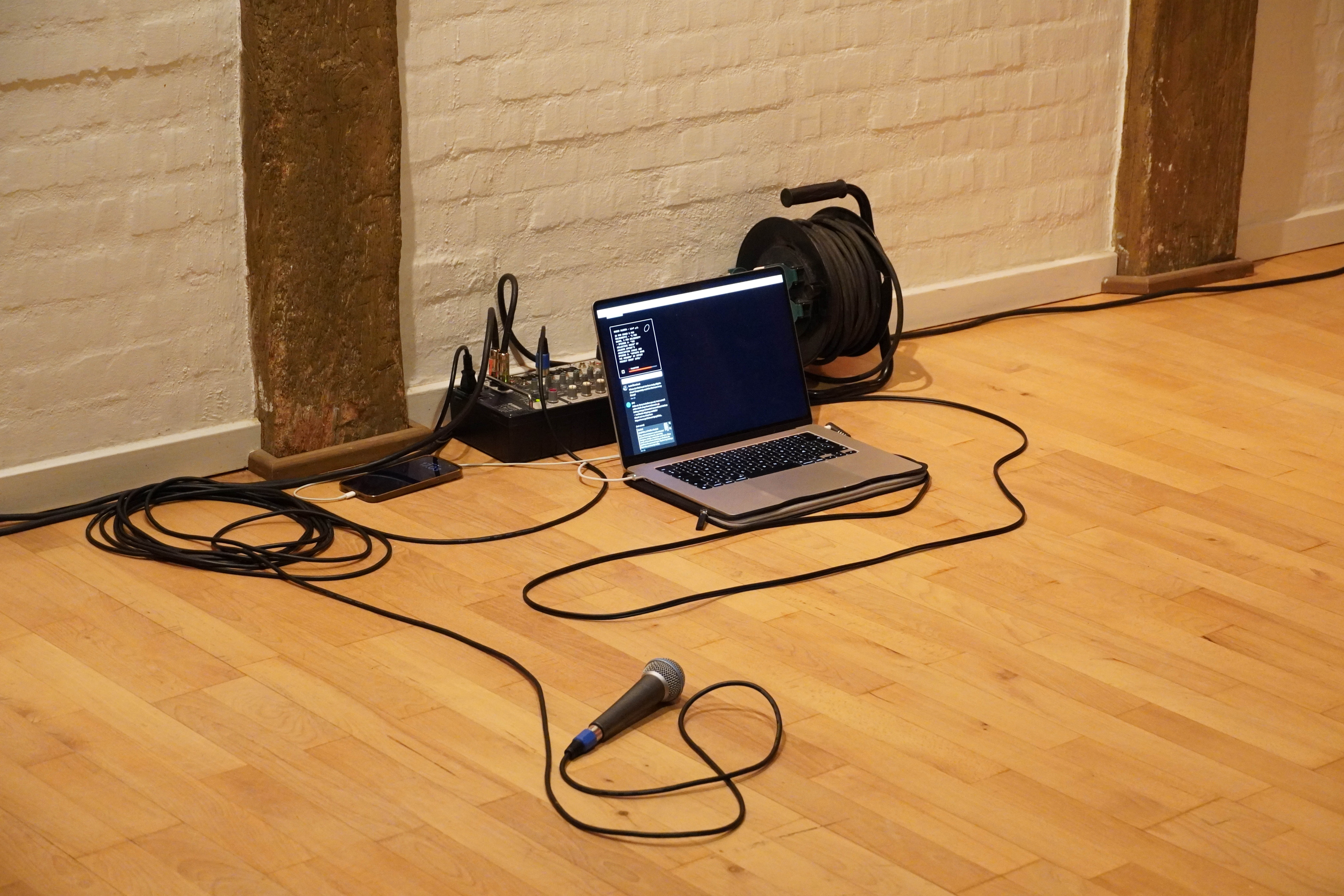
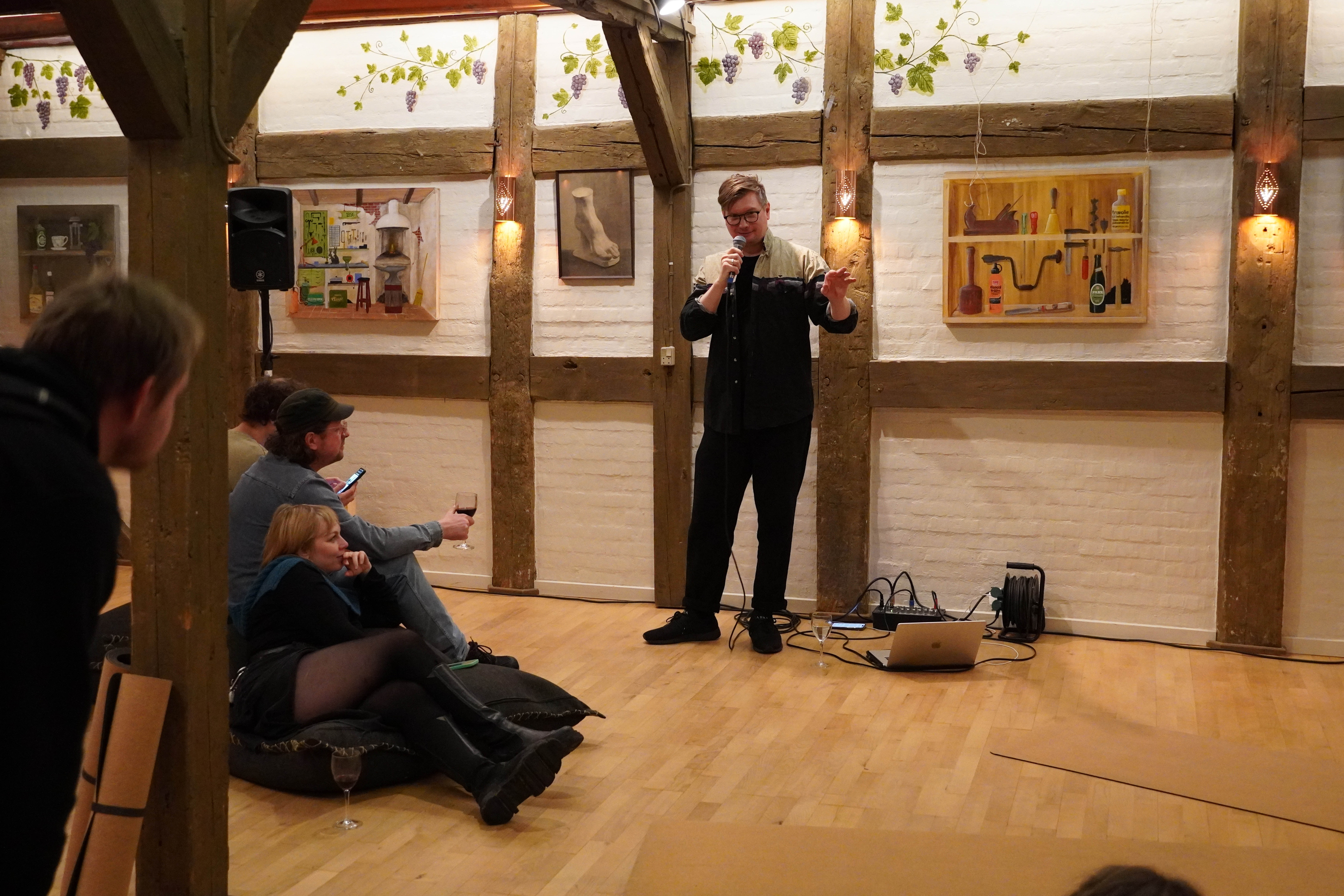
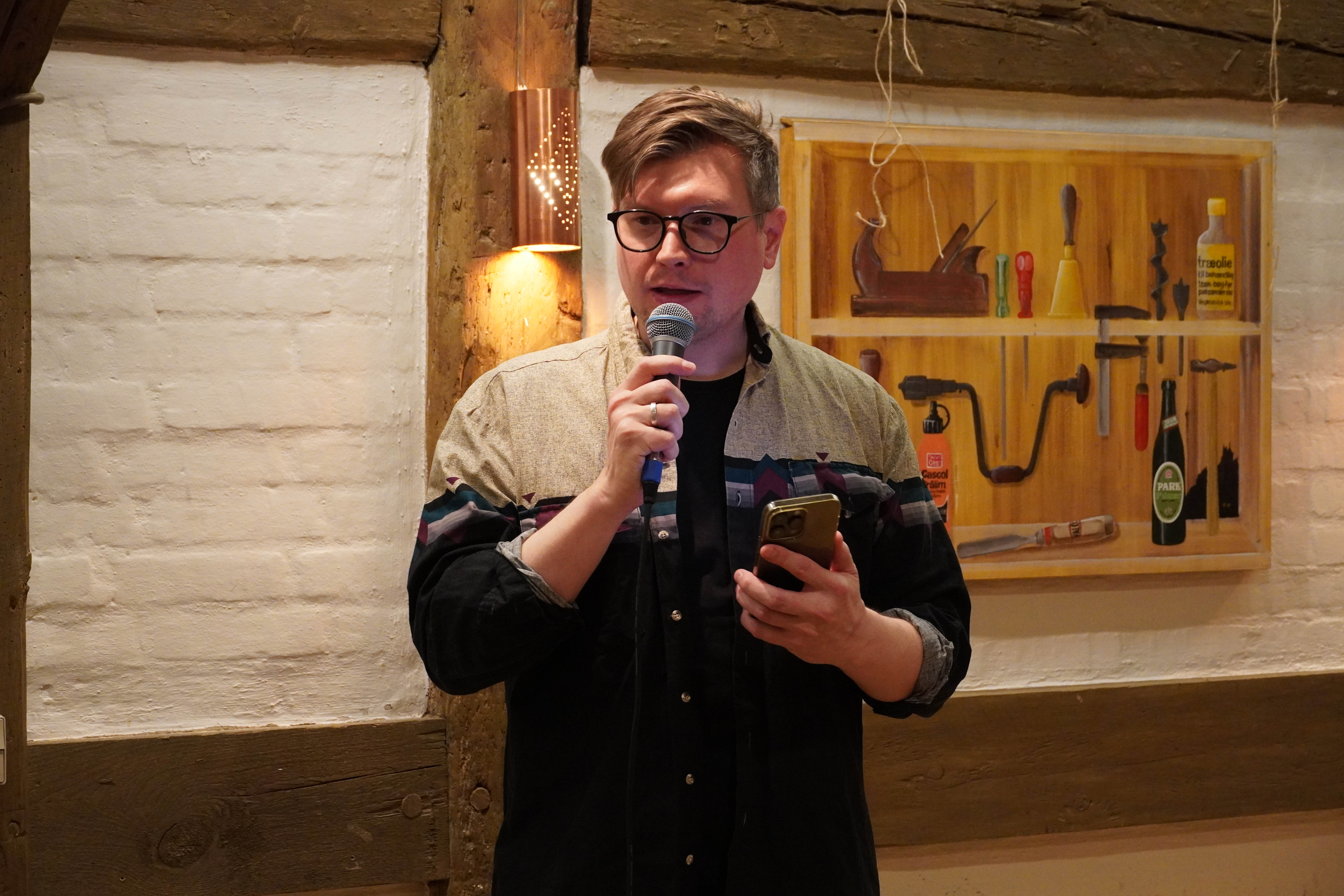
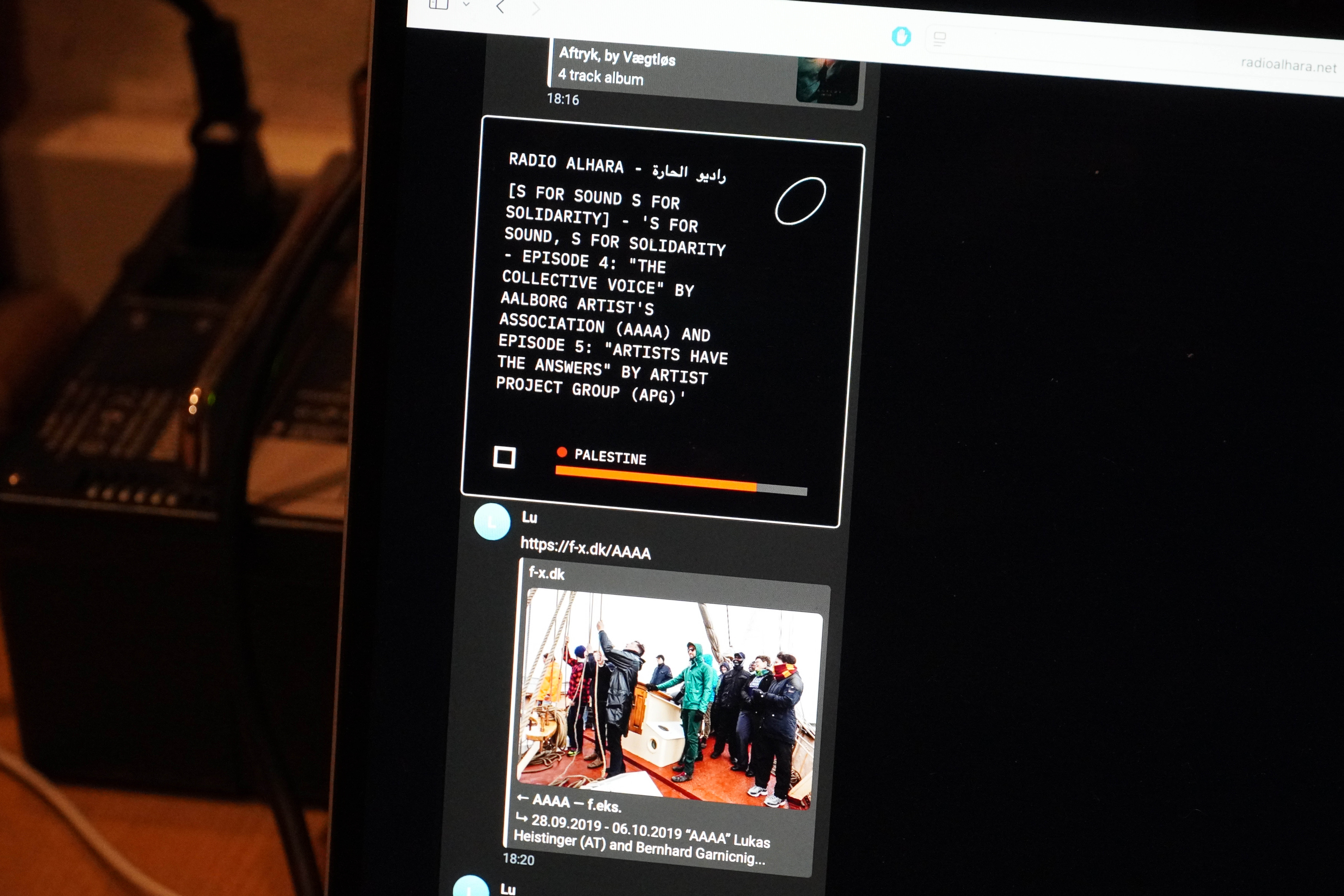
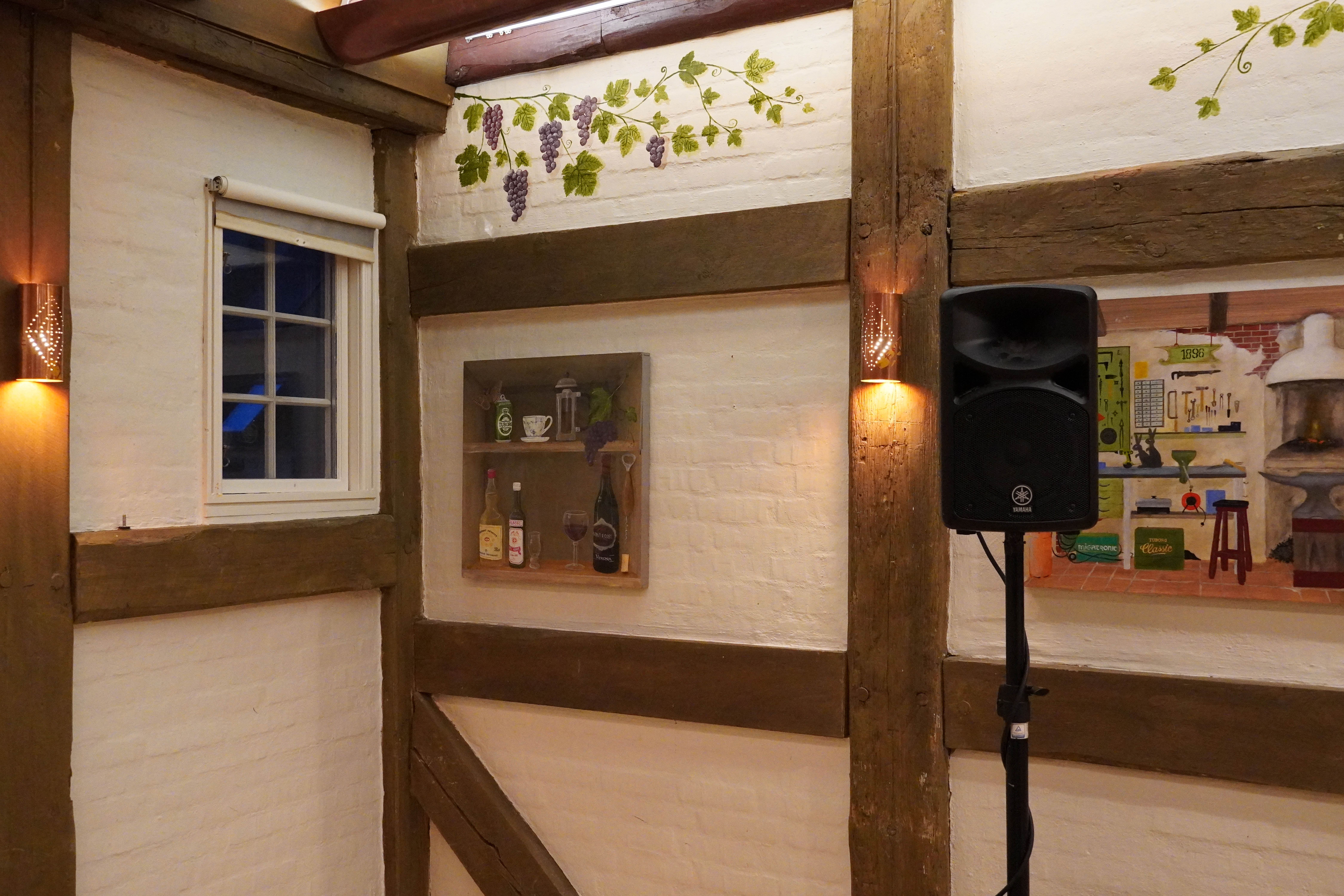
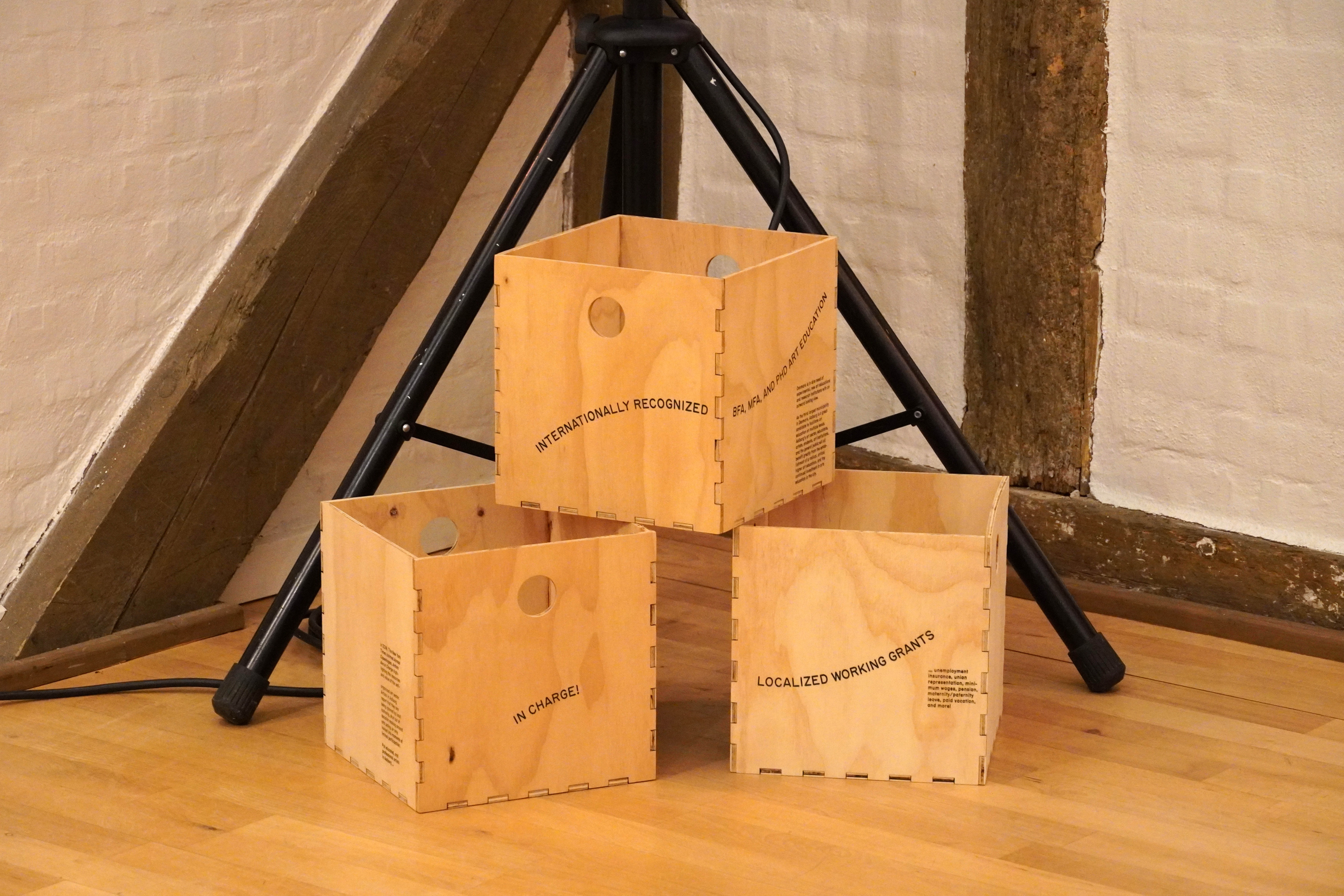
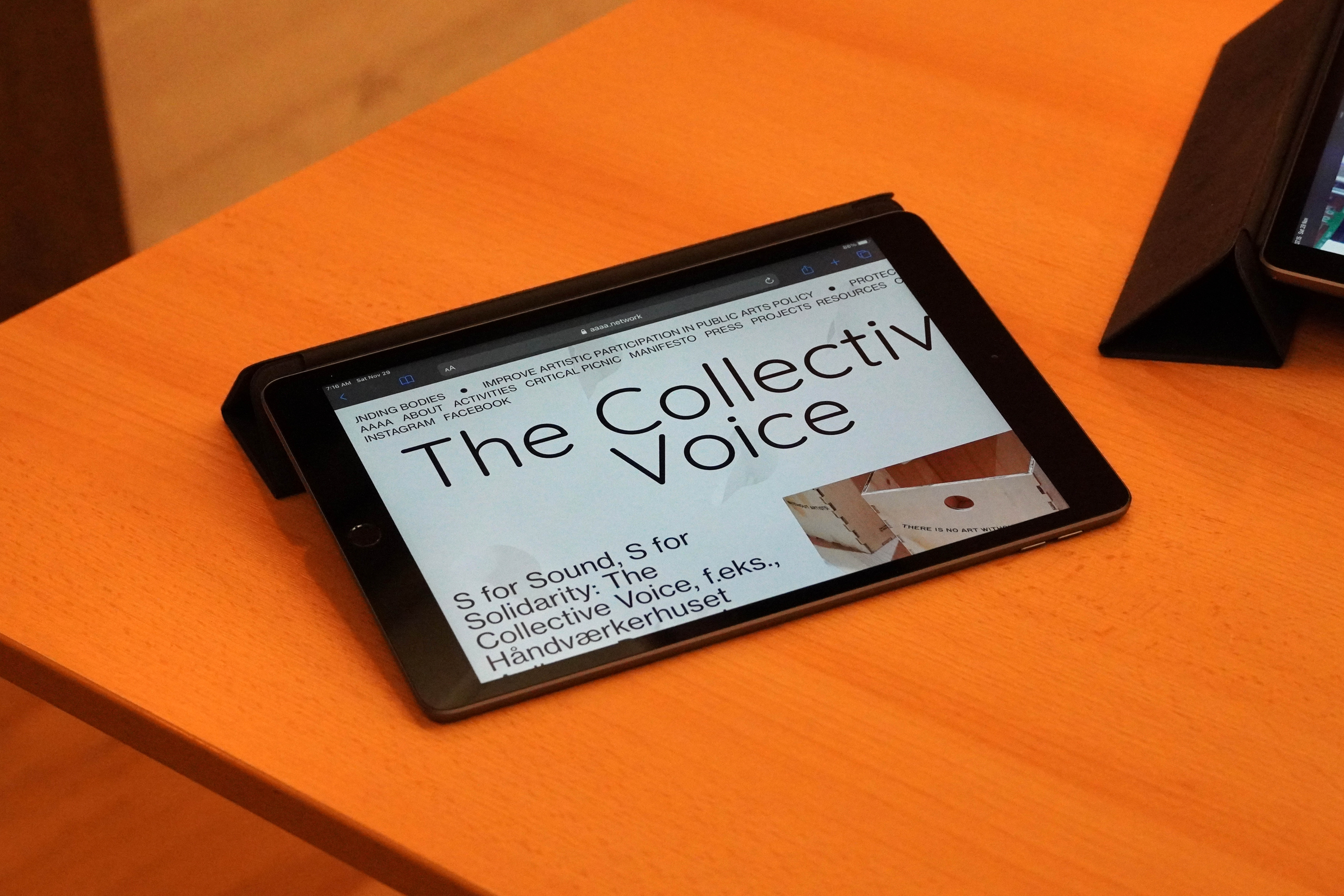
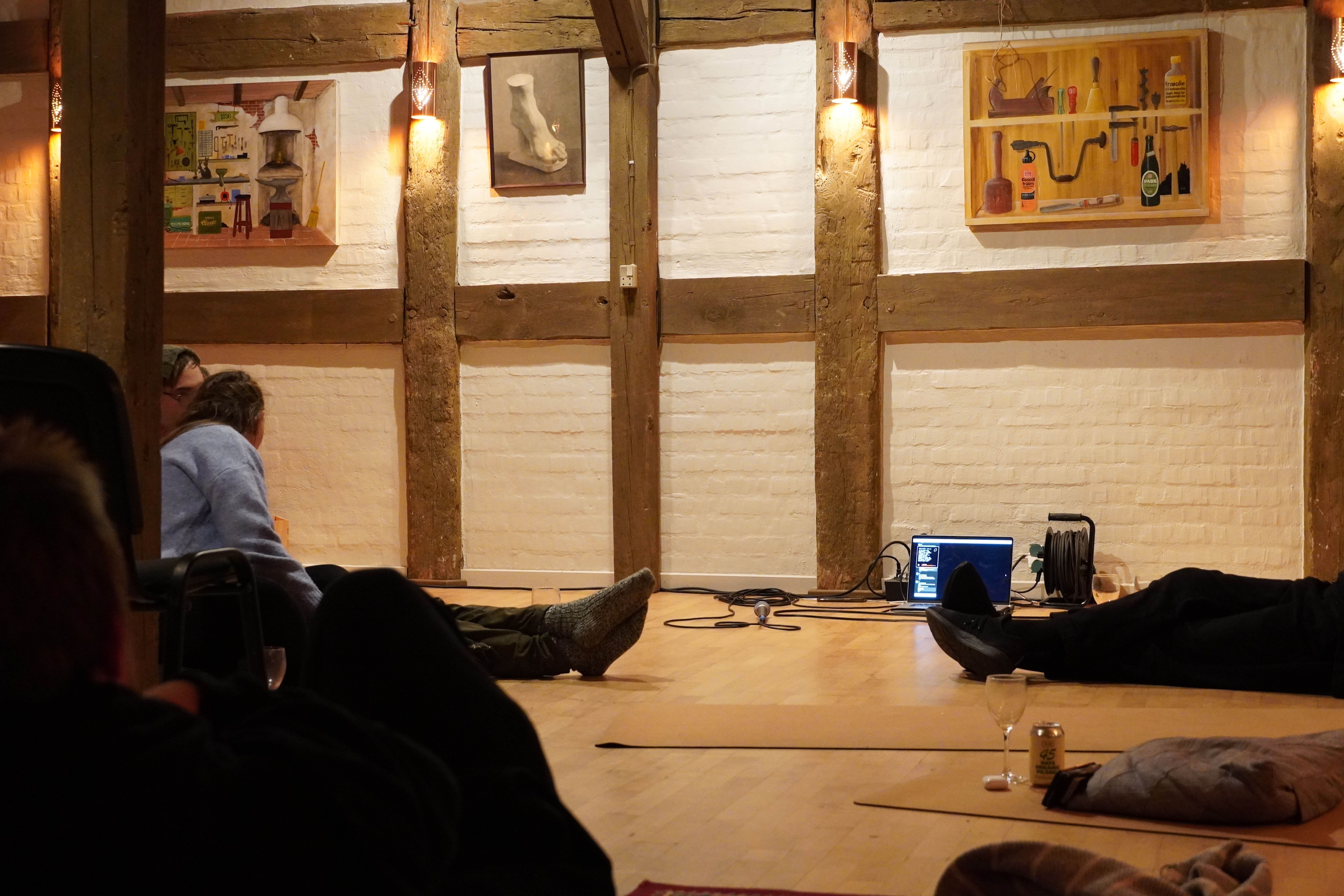


S for Sound, S for Solidarity: Listening Lounge is a double feature collective listening session of the two new episodes of S for Sound, S for Solidarity - episode 4 with Aalborg Artist’s Association (AAAA), and episode 5 with Artist Project Group (APG) as they are premiered on Radio Alhara.
Drawing from The Collective Voice, an experimental vocal workshop hosted by Aalborg Artist’s Association (AAAA) at Håndværkerhuset in October 2025, the fourth episode of S for Sound, S for Solidarity presents a remixed montage of voices by local artists and art workers from Aalborg, Denmark.
In the fifth episode of S for Sound, S for Solidarity the Vienna based Artist Project Group (APG) sonically unfold various social, economic, and political possibilities for artists to engage institutions differently via their experimental practice as an “artist consultancy agency”. Through interviews, discussion, testimonies, and sound bites from artists who have operated within their consultancy infrastructure, APG suggests “artists have the answers”. APG sets this broader narrative to a soundtrack of Aalborg’s local music scene as a contextual connection to their previous artist consultancy work in Northern Denmark. This includes their 2019 project Aalborg Anti-Artwashing Agreement (AAAA), which later helped motivate the establishment of the Aalborg Artists Association (AAAA).
A special thank you to Radio alHara راديو الحارة, Huset i Hasserisgade, Korma, Håndværkerhuset, Parsa Sanjana Sajid, Miriam Simun, Andrea Steves, Kamilla Mez, TWIIID, Bureau of Analogies, Vægtløs, Oskar Krusell, Tone, Hummerdreng, Grassat, Bjørn Svin, Angst, HaremSluts, Wäldchengarten, Twelve Tone Ballads Trio, Simi The Curse, Morten Poulsen, and Nikolaj Legaard for helping in the realization of this project.
Drawing from The Collective Voice, an experimental vocal workshop hosted by Aalborg Artist’s Association (AAAA) at Håndværkerhuset in October 2025, the fourth episode of S for Sound, S for Solidarity presents a remixed montage of voices by local artists and art workers from Aalborg, Denmark.
In the fifth episode of S for Sound, S for Solidarity the Vienna based Artist Project Group (APG) sonically unfold various social, economic, and political possibilities for artists to engage institutions differently via their experimental practice as an “artist consultancy agency”. Through interviews, discussion, testimonies, and sound bites from artists who have operated within their consultancy infrastructure, APG suggests “artists have the answers”. APG sets this broader narrative to a soundtrack of Aalborg’s local music scene as a contextual connection to their previous artist consultancy work in Northern Denmark. This includes their 2019 project Aalborg Anti-Artwashing Agreement (AAAA), which later helped motivate the establishment of the Aalborg Artists Association (AAAA).
A special thank you to Radio alHara راديو الحارة, Huset i Hasserisgade, Korma, Håndværkerhuset, Parsa Sanjana Sajid, Miriam Simun, Andrea Steves, Kamilla Mez, TWIIID, Bureau of Analogies, Vægtløs, Oskar Krusell, Tone, Hummerdreng, Grassat, Bjørn Svin, Angst, HaremSluts, Wäldchengarten, Twelve Tone Ballads Trio, Simi The Curse, Morten Poulsen, and Nikolaj Legaard for helping in the realization of this project.
Saturday, November 29th:
Collective Listening Session from 4:30 - 7:30 pm
Håndværkerhuset (Second Floor Meeting Room), Kattesundet 20, 9000 Aalborg
Program:
4:30 pm Welcome with snacks & drinks
5:00 pm Listening to The Collective Voice
6:00 pm Listening to Artists Have the Answers
Click here for full episodes 4 & 5 (soundcloud)
Collective Listening Session from 4:30 - 7:30 pm
Håndværkerhuset (Second Floor Meeting Room), Kattesundet 20, 9000 Aalborg
Program:
4:30 pm Welcome with snacks & drinks
5:00 pm Listening to The Collective Voice
6:00 pm Listening to Artists Have the Answers
Click here for full episodes 4 & 5 (soundcloud)
Artist Project Group (APG) is a collaboration between Lukas Heistinger, Bernhard Garnicnig, and Andrea Steves. They employ performative and collective forms of organization-building in their curatorial and artistic practices to interrogate phenomena of capitalism. APG is formalized as an association for criticism and production and is based in Vienna, Austria.
AAAA, or the Aalborg Artist’s Association, is a hybrid non-profit organization and collective artist-run initiative. Founded in 2019, it is located in Aalborg and also operates in the greater Northern Jutland Region of Denmark. The organization’s goals focus on creating better economic, social, and political circumstances for contemporary and visual artists working in Aalborg. AAAA is a multi-faceted organization that acts as an independent political advisor, arts policy platform, artist collective, project space, and social forum.
AAAA, or the Aalborg Artist’s Association, is a hybrid non-profit organization and collective artist-run initiative. Founded in 2019, it is located in Aalborg and also operates in the greater Northern Jutland Region of Denmark. The organization’s goals focus on creating better economic, social, and political circumstances for contemporary and visual artists working in Aalborg. AAAA is a multi-faceted organization that acts as an independent political advisor, arts policy platform, artist collective, project space, and social forum.
S for Sound, S for Solidarity:
“The Collective Voice”
Featuring Aalborg Artist’s Association (AAAA)
“The Collective Voice”
Featuring Aalborg Artist’s Association (AAAA)
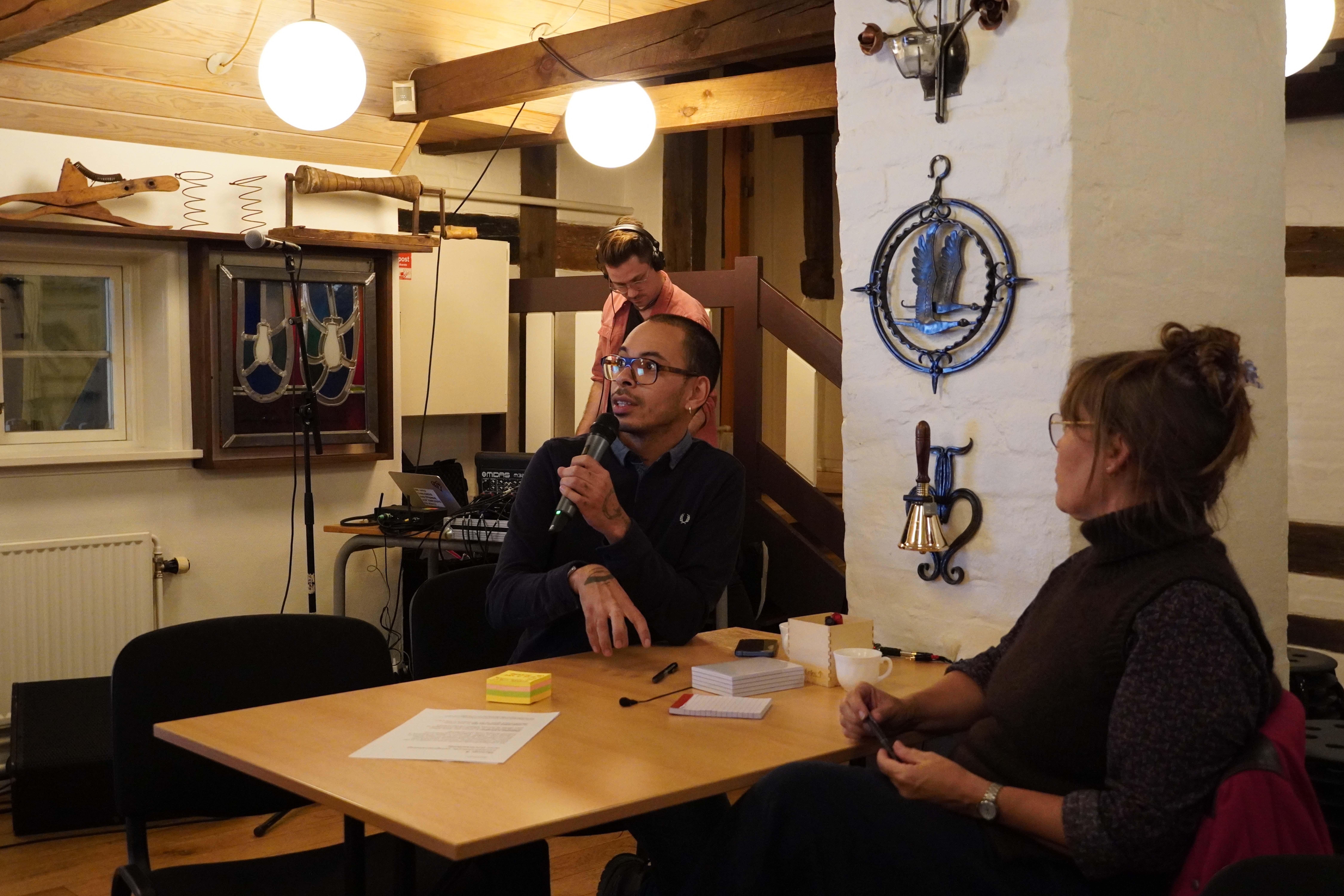

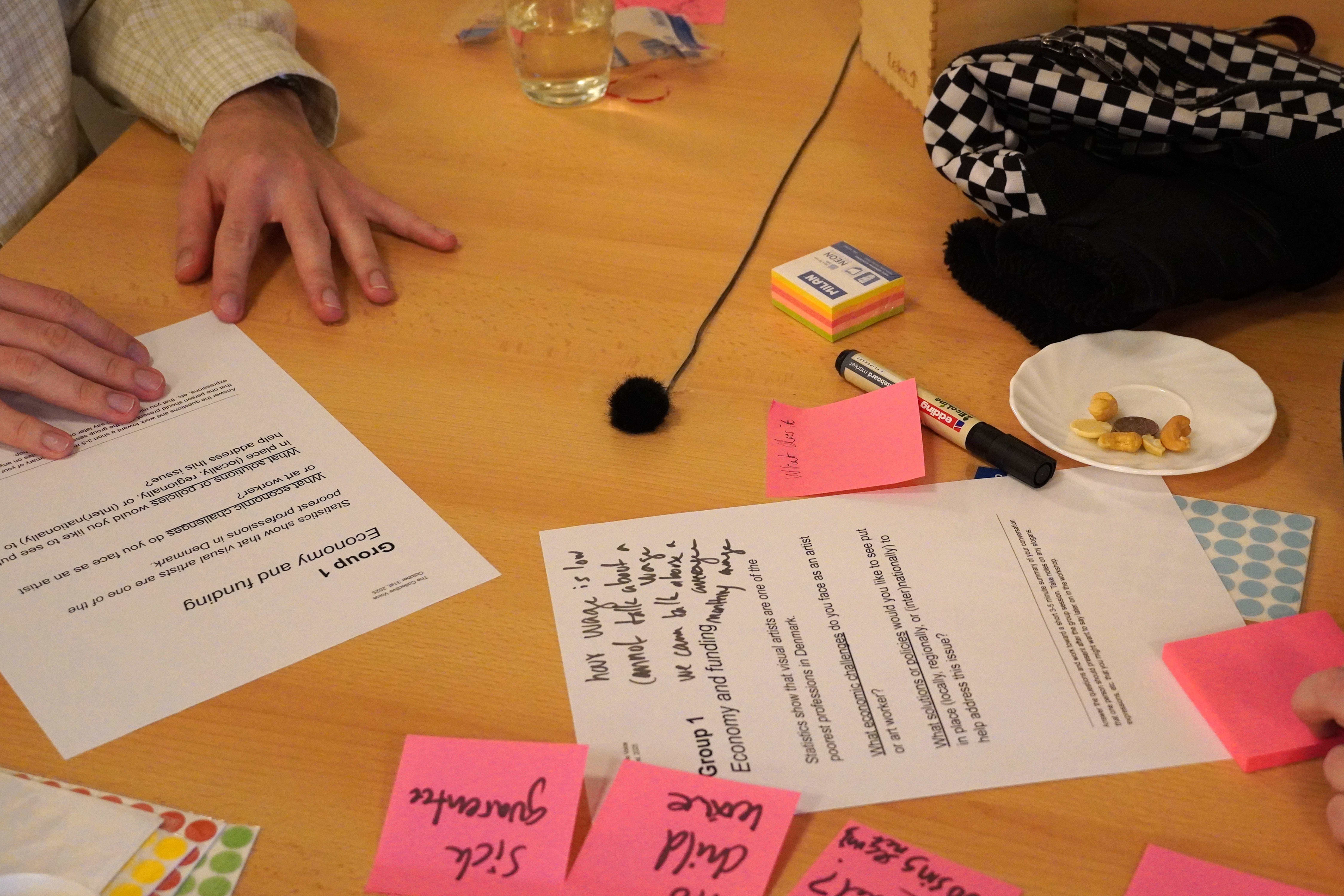
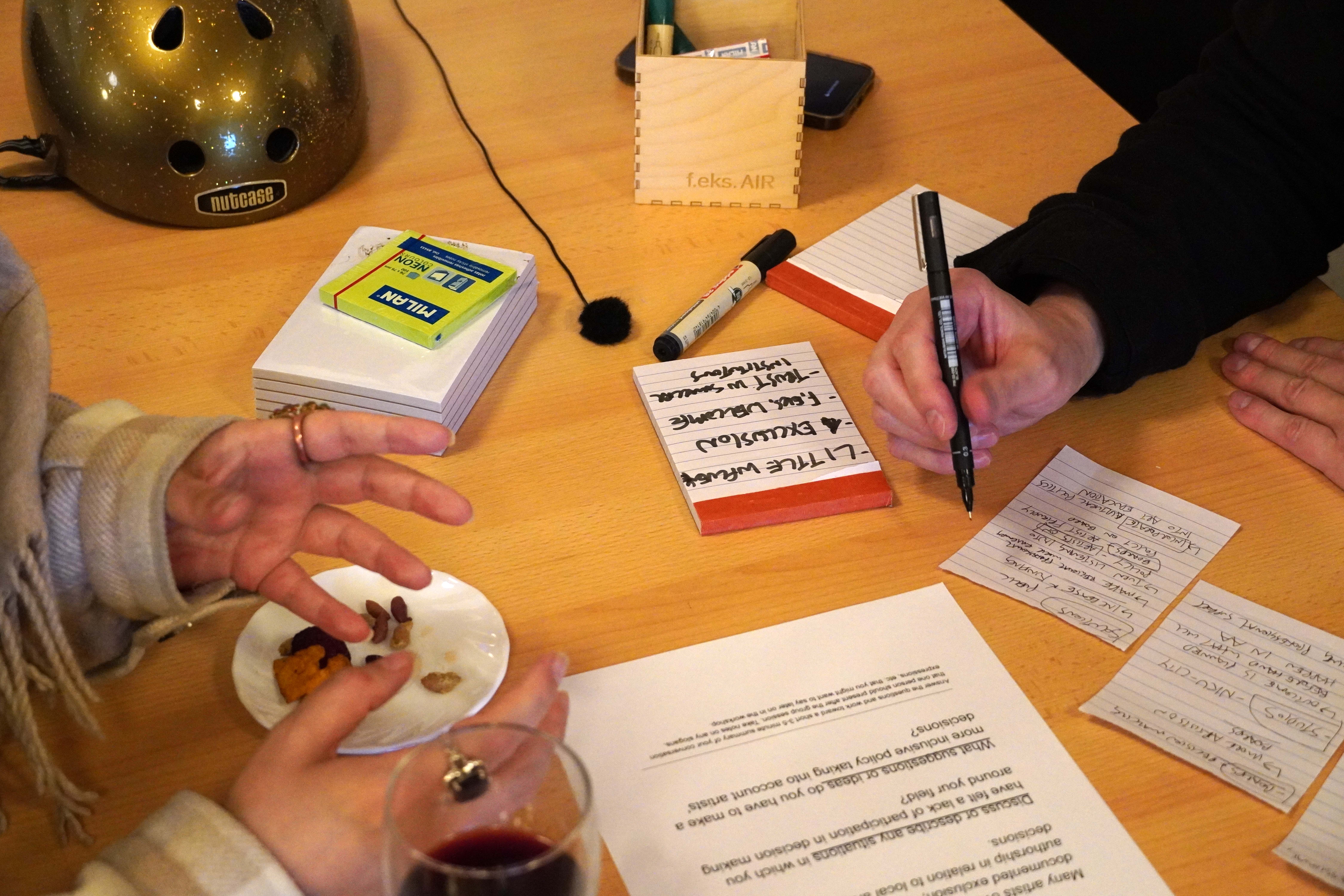
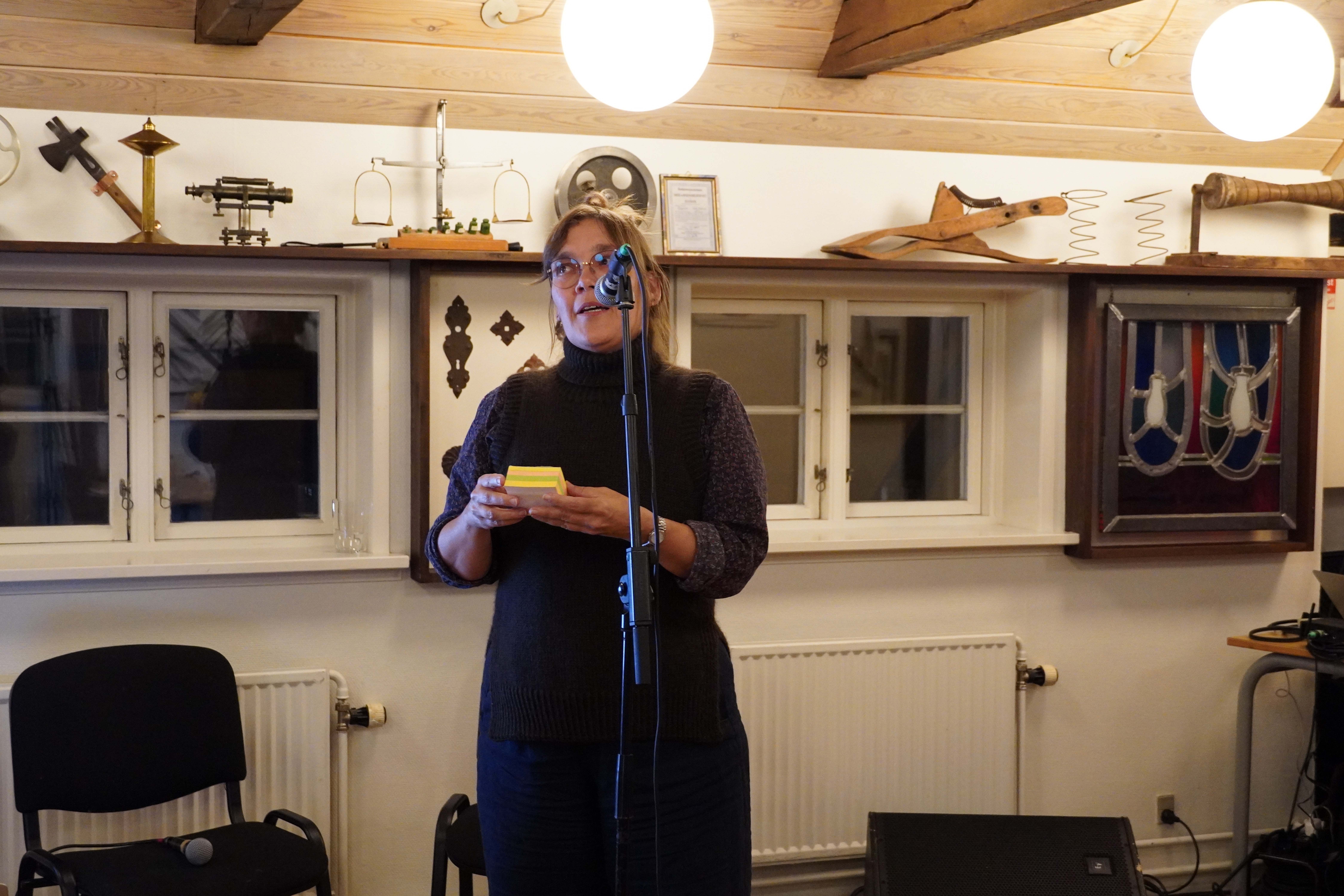
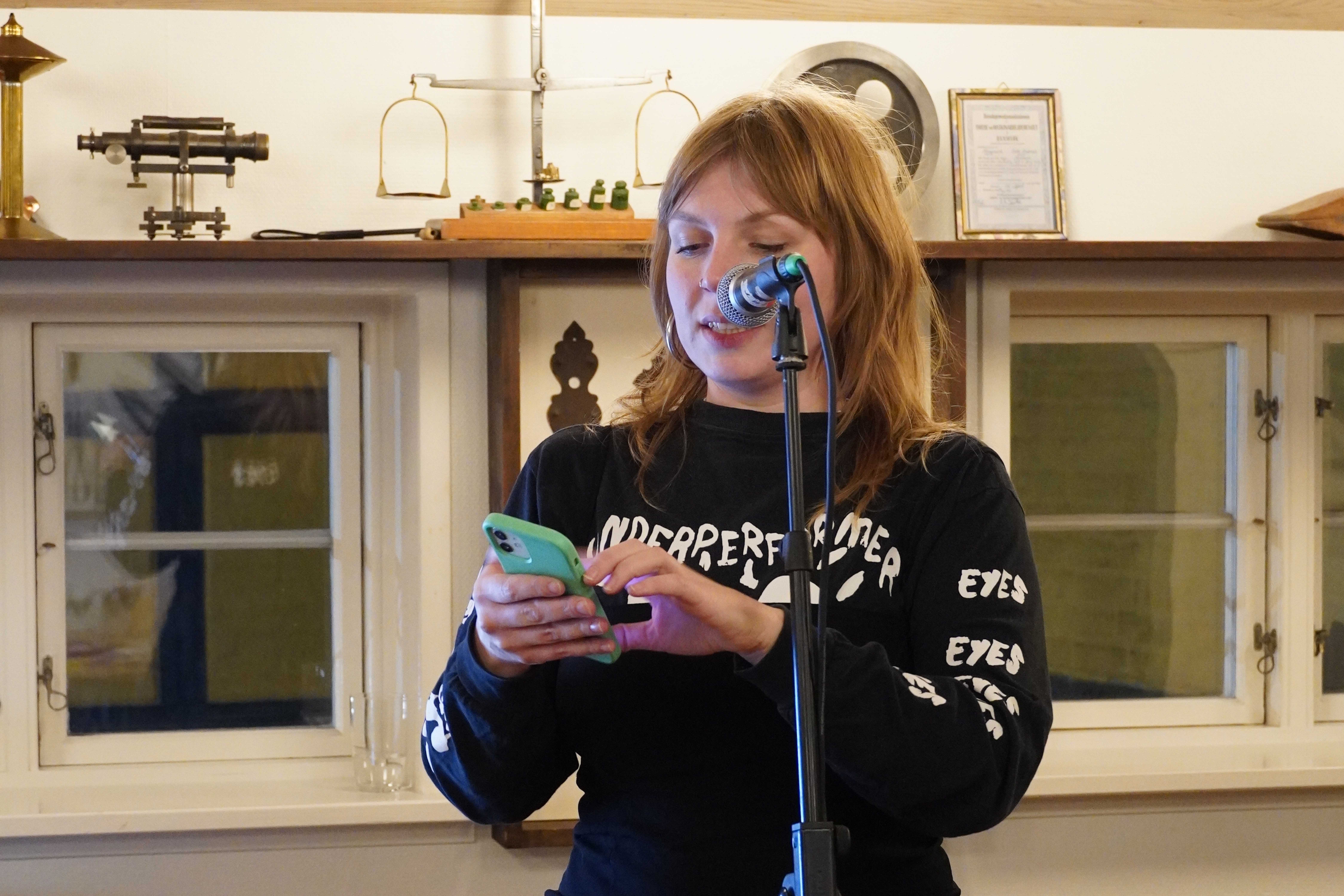
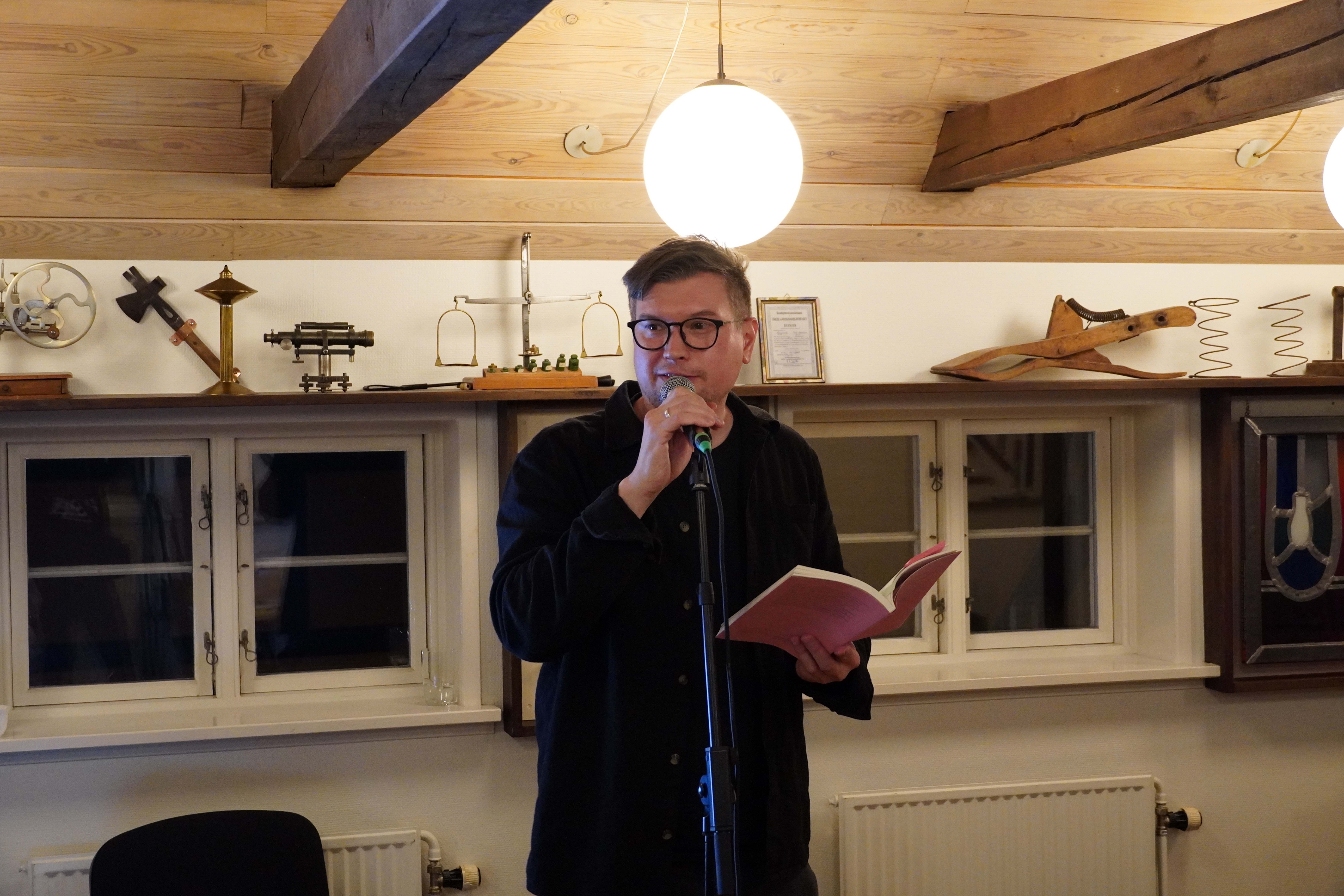
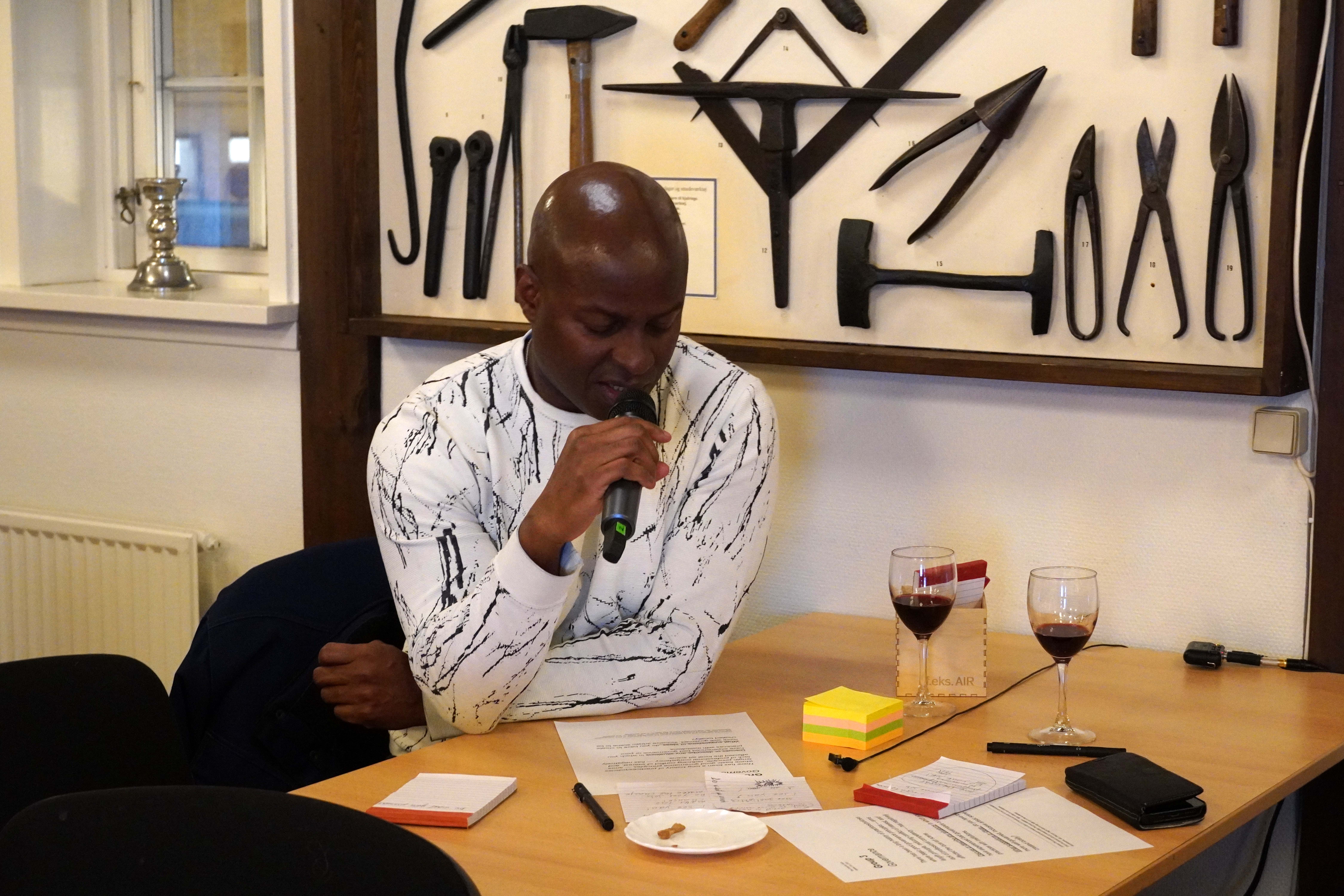
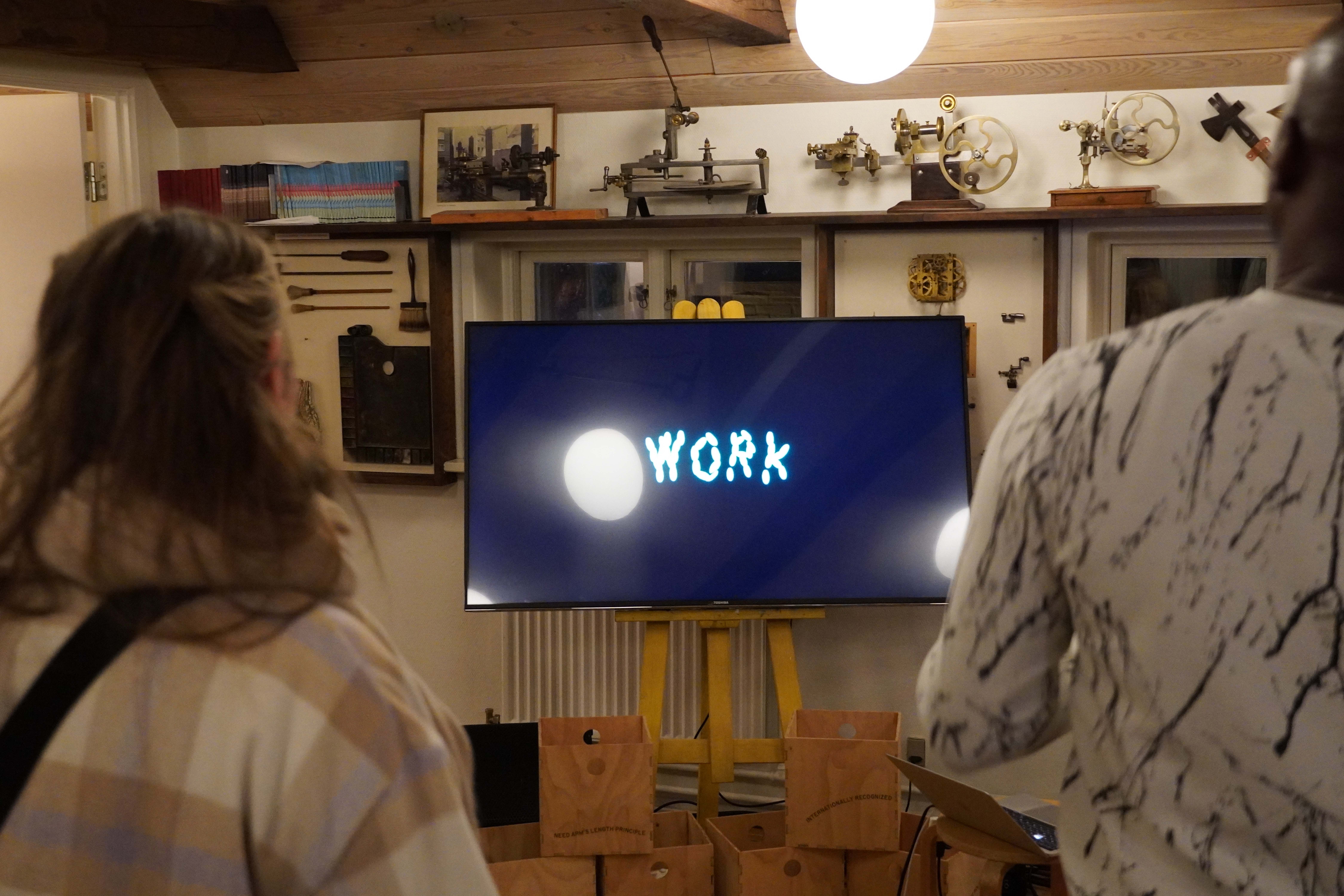
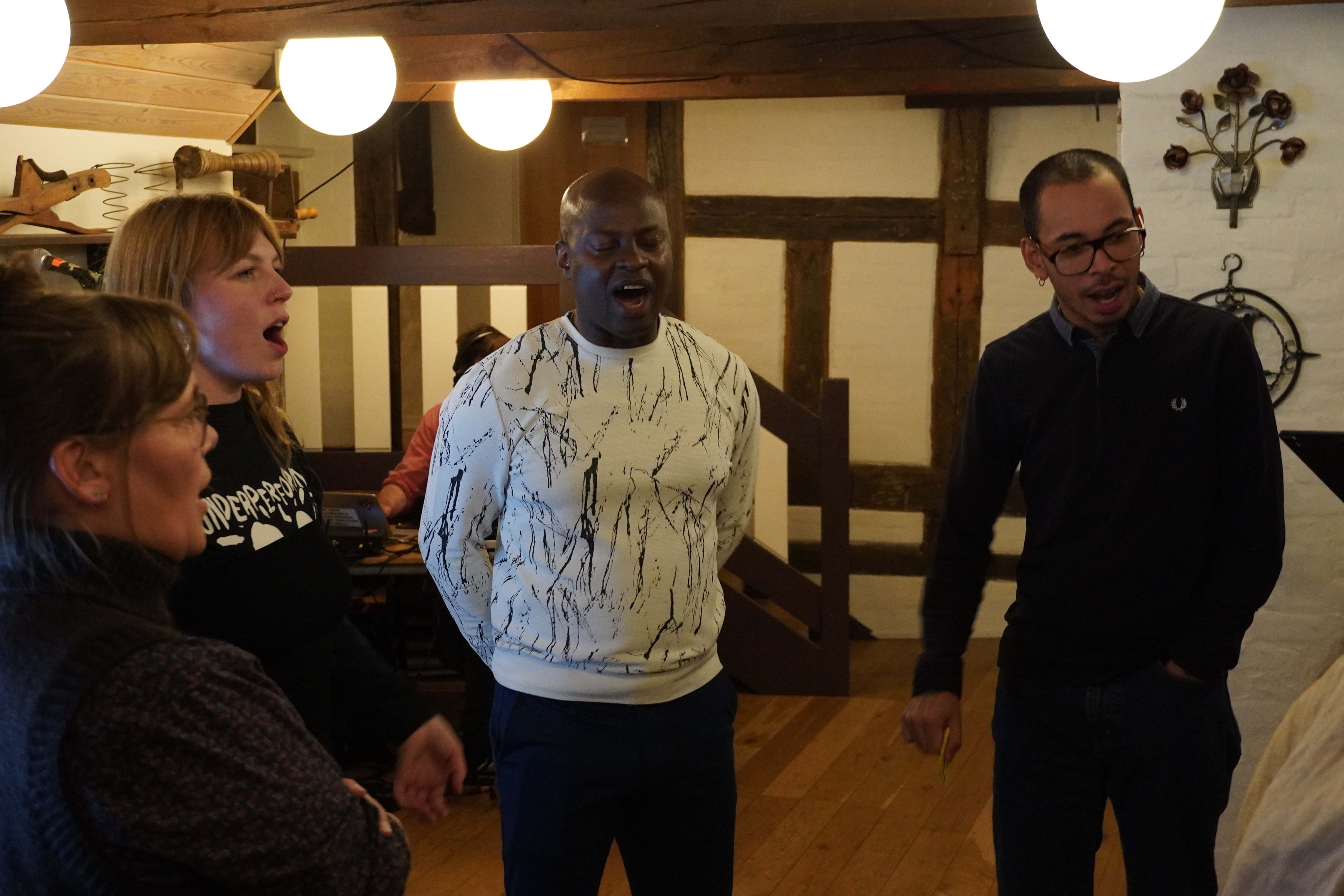
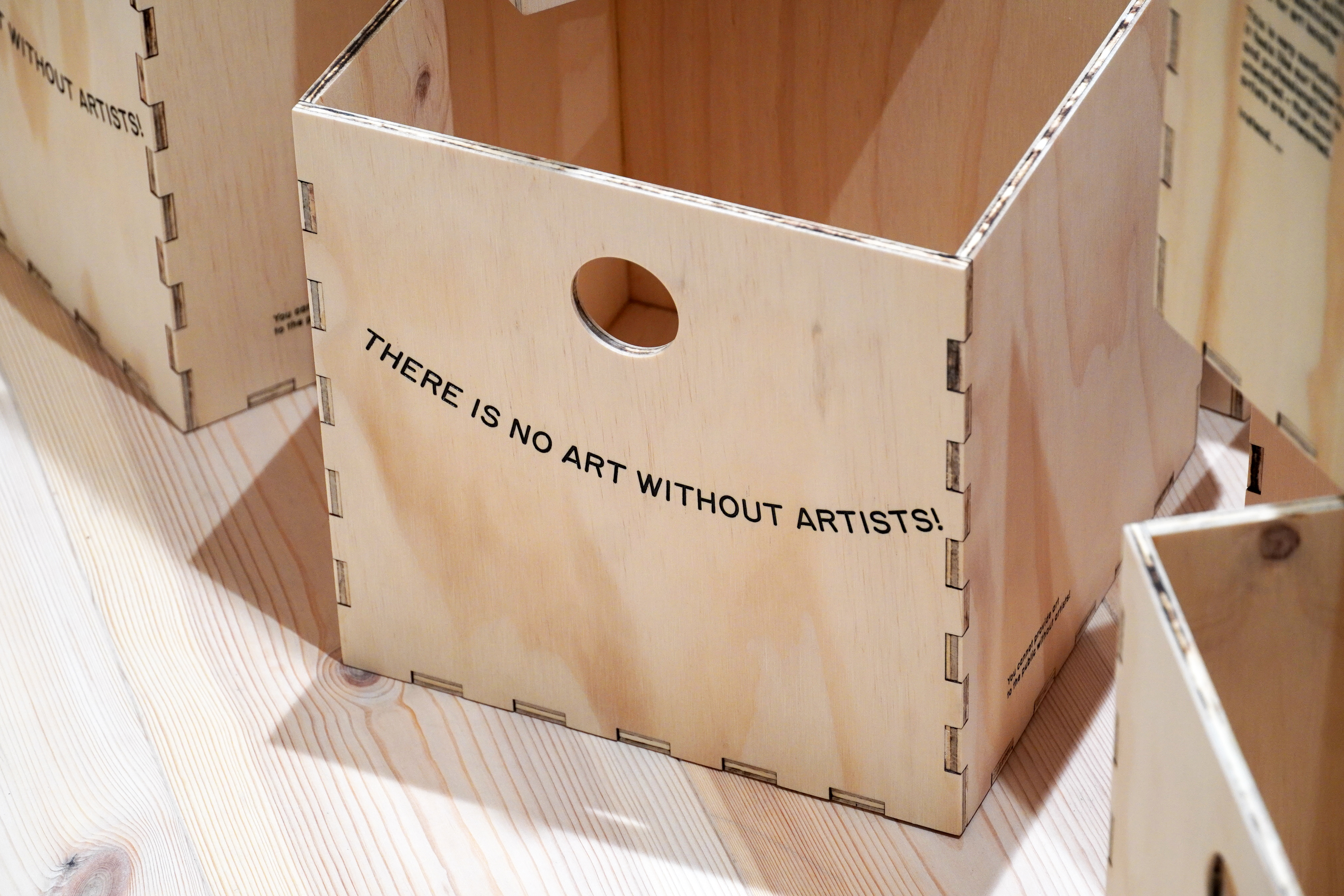
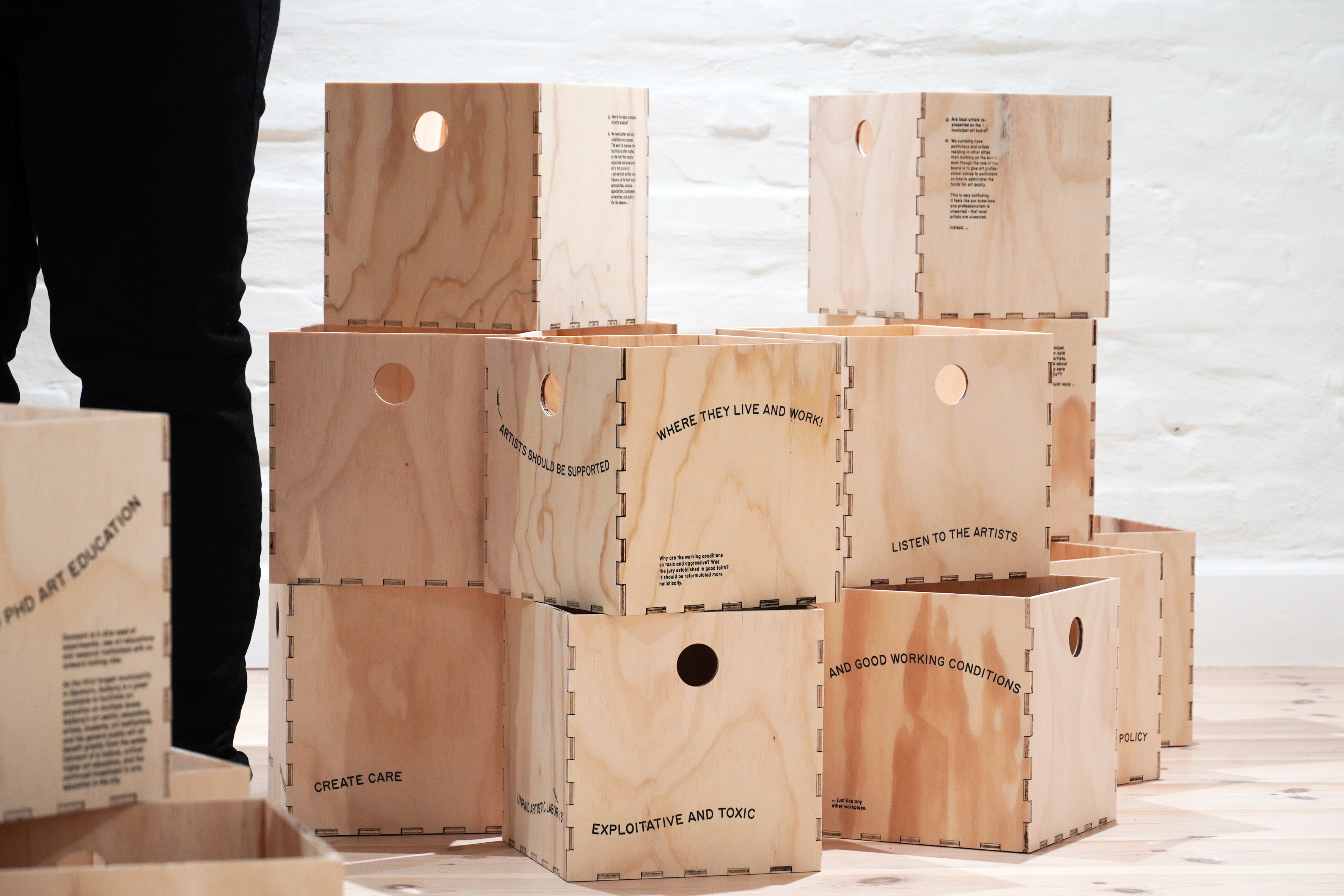
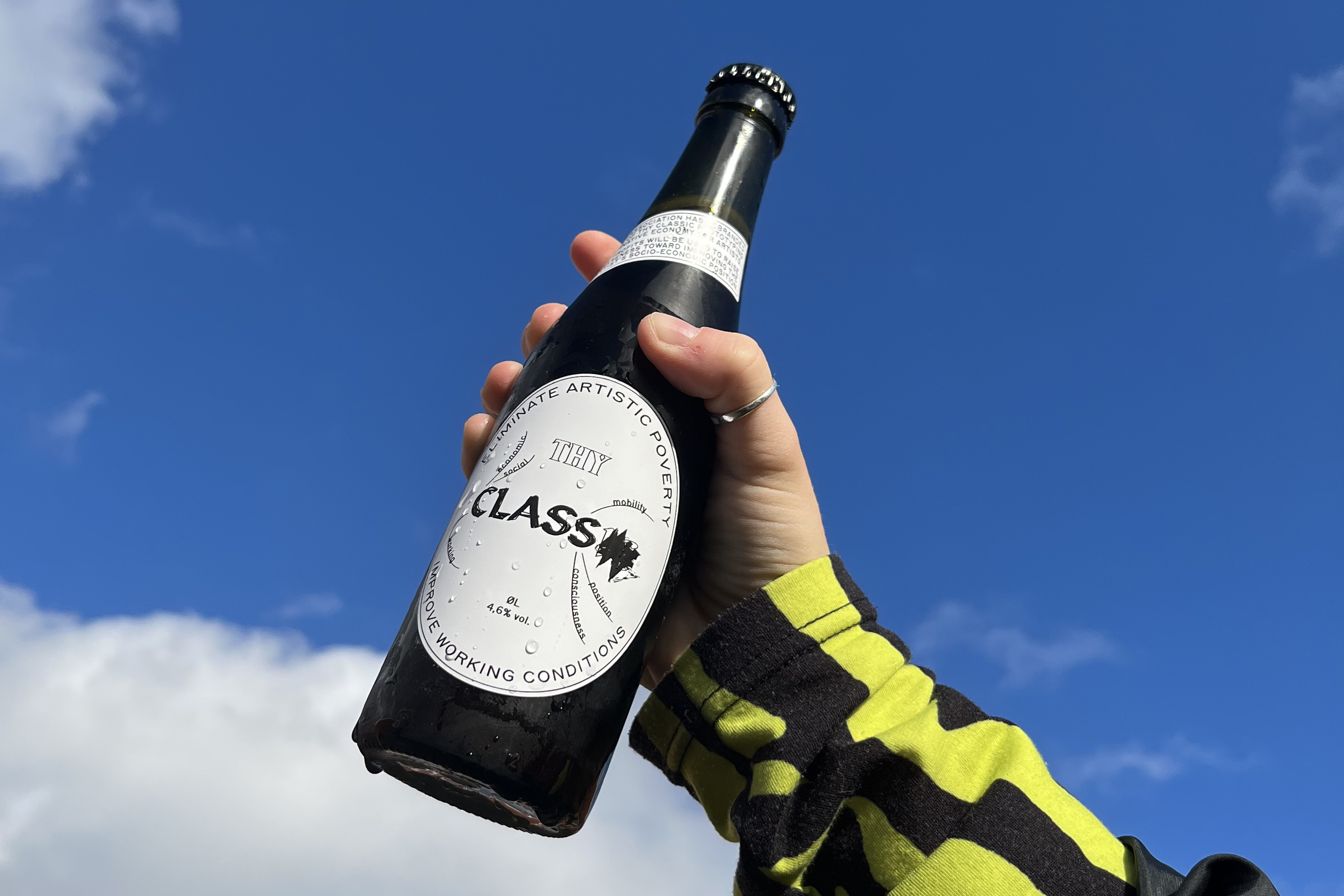
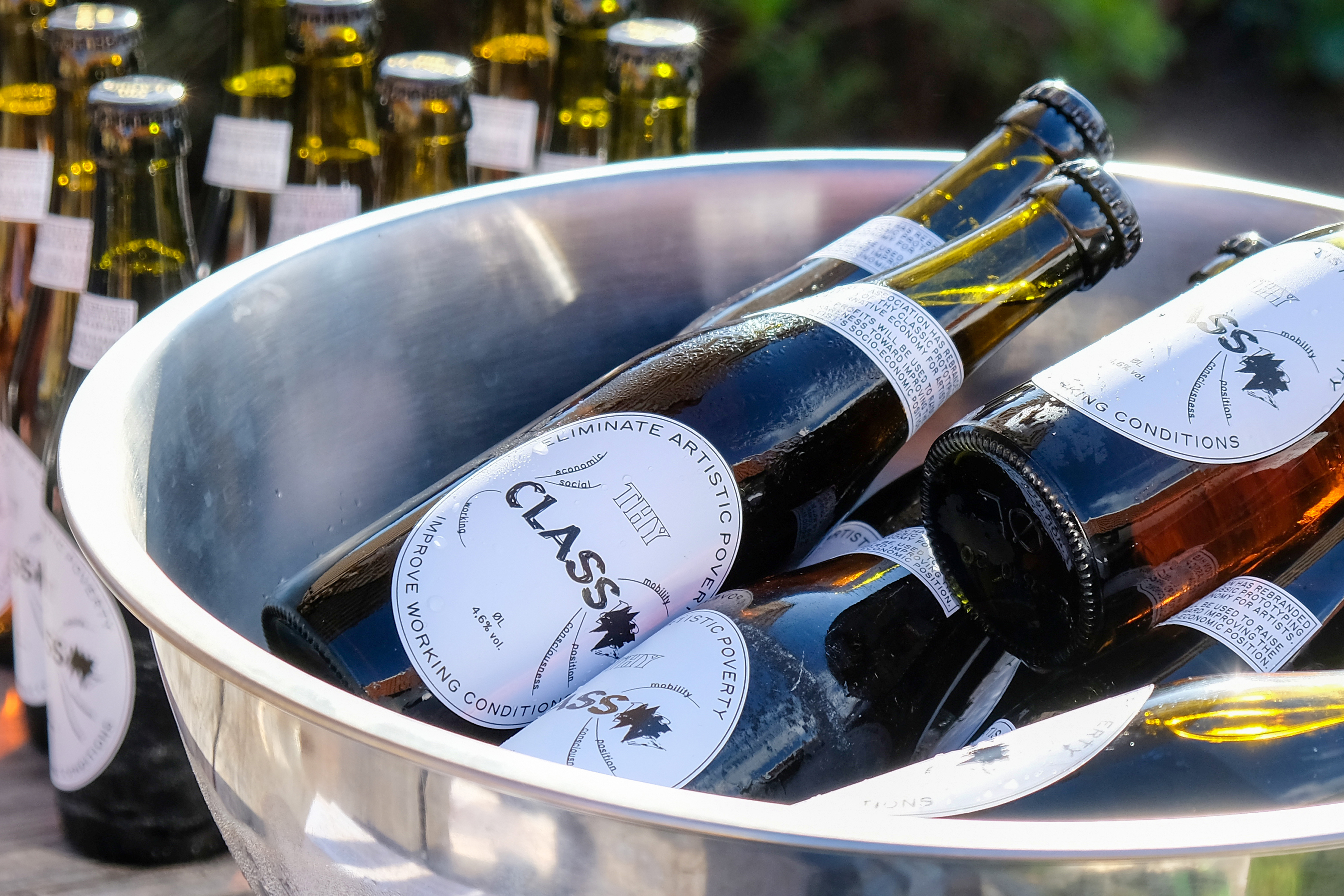
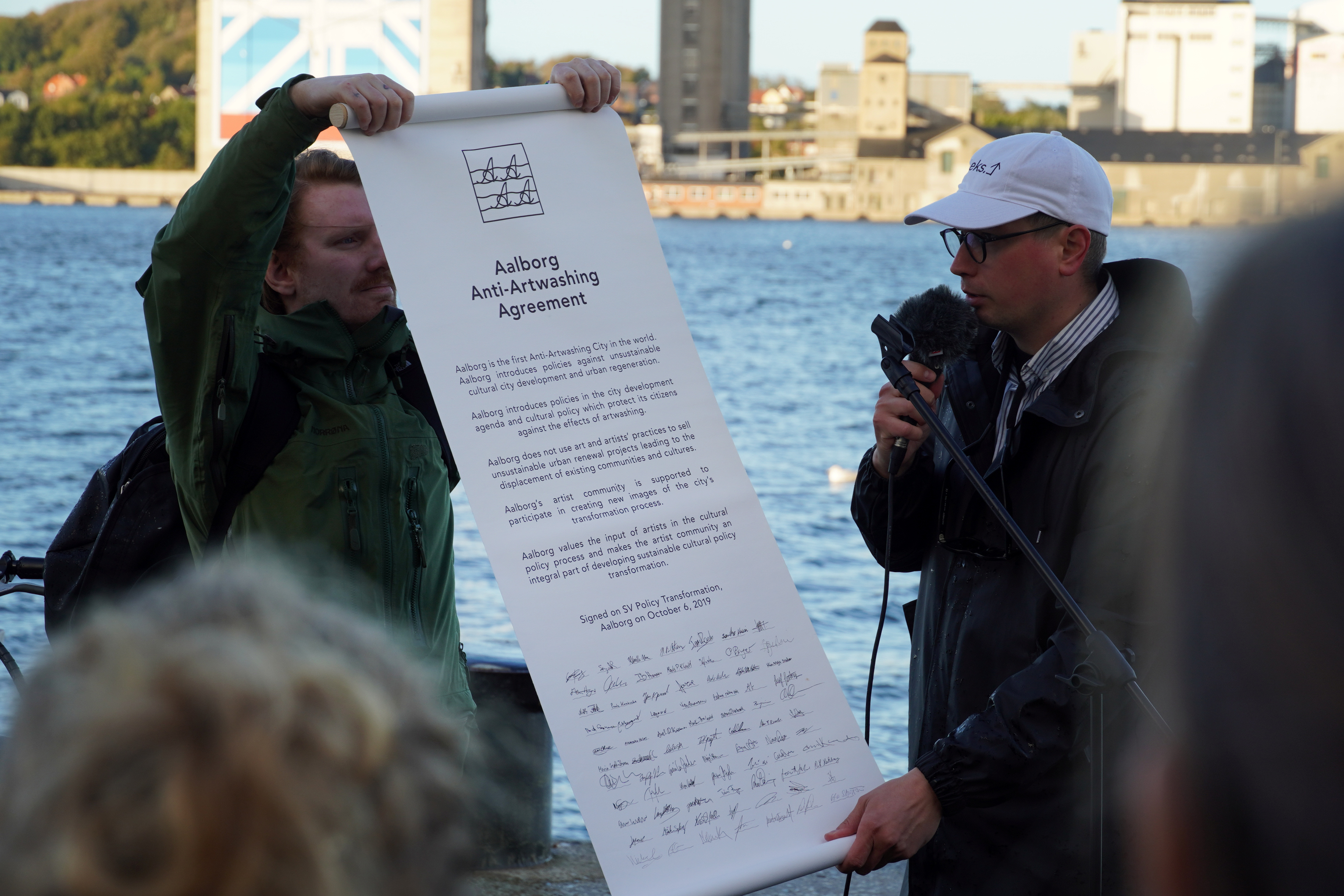
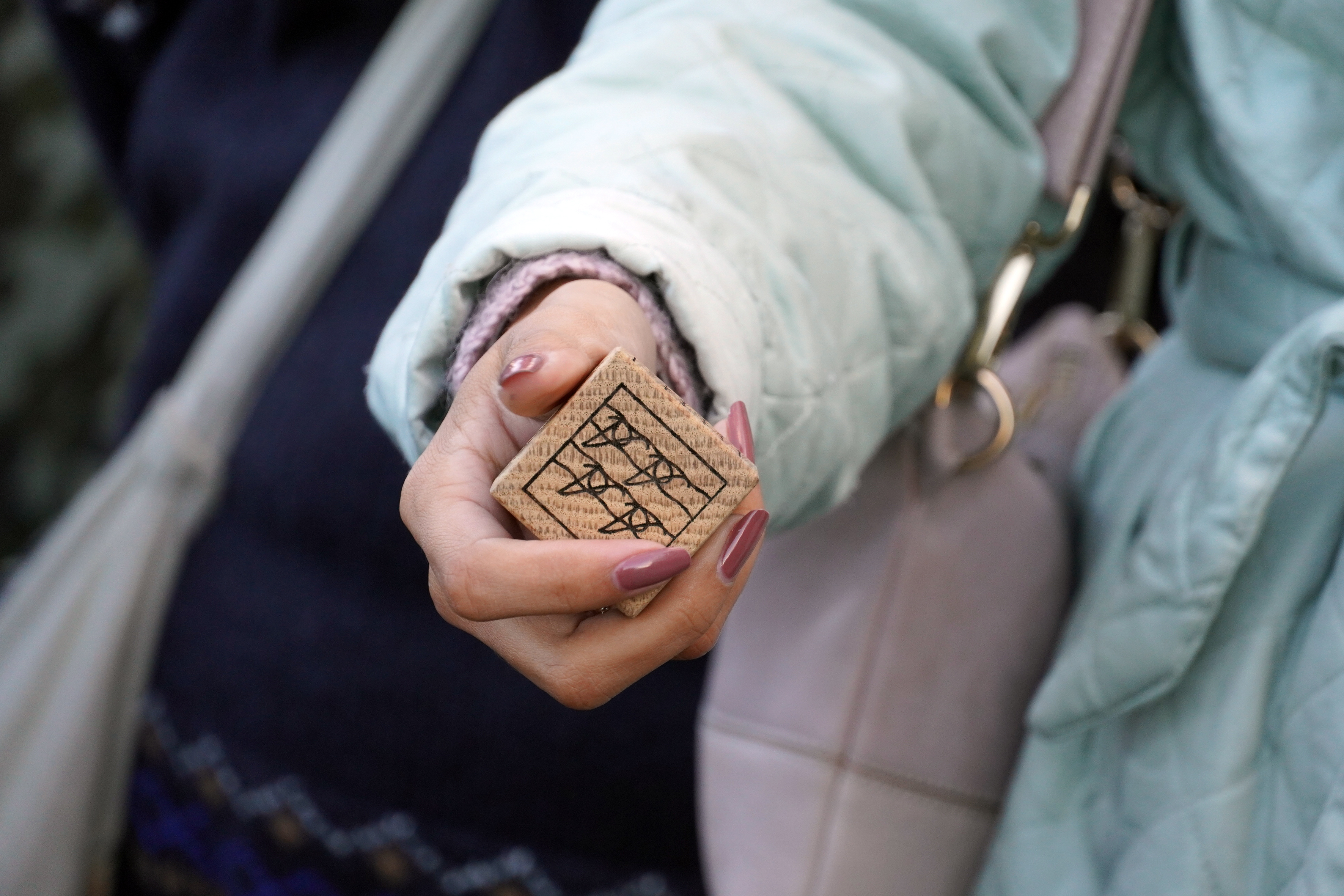
The Collective Voice is a site-specific sonic workshop and visual artist gathering featuring Aalborg Artist’s Association (AAAA).
The Collective Voice seeks to provide an experimental format for the collective expression of creative and critical voices in a welcoming environment. The gathering draws inspiration from speeches, songs, discussions, chants, people’s mics and other forms of sound utilized to express solidarity and unity across public protests, strikes, and other activistic and organizational contexts. The Collective Voice will provide a platform for understanding the local situation in Aalborg, in which artists often experience economic, social, and institutional challenges, as well as function to contextualize this in relation to wider artistic struggles and broader global frameworks.
The Collective Voice takes place at a time when artistic cultural policy in Northern Jutland is tenuous; funding is being cut, Kunsthal Nord has closed, Aalborg University is slated to remove entire cultural departments, and municipal studios are in jeopardy. This is in a climate where local artists stated they experienced exclusion, marginalization, and are lacking a seat at the table in many decisions that immediately affect their socio-economic and cultural positions. The Collective Voice seeks to provide a space for expression free from (self-)censorship, drawing on historical forms that share knowledge, create new awareness, and energize audiences.
A special thank you to Radio alHara راديو الحارة, Huset i Hasserisgade, Korma, Håndværkerhuset, TWIIID, Morten Poulsen, and Nikolaj Legaard for helping in the realization of this project.
The Collective Voice seeks to provide an experimental format for the collective expression of creative and critical voices in a welcoming environment. The gathering draws inspiration from speeches, songs, discussions, chants, people’s mics and other forms of sound utilized to express solidarity and unity across public protests, strikes, and other activistic and organizational contexts. The Collective Voice will provide a platform for understanding the local situation in Aalborg, in which artists often experience economic, social, and institutional challenges, as well as function to contextualize this in relation to wider artistic struggles and broader global frameworks.
The Collective Voice takes place at a time when artistic cultural policy in Northern Jutland is tenuous; funding is being cut, Kunsthal Nord has closed, Aalborg University is slated to remove entire cultural departments, and municipal studios are in jeopardy. This is in a climate where local artists stated they experienced exclusion, marginalization, and are lacking a seat at the table in many decisions that immediately affect their socio-economic and cultural positions. The Collective Voice seeks to provide a space for expression free from (self-)censorship, drawing on historical forms that share knowledge, create new awareness, and energize audiences.
A special thank you to Radio alHara راديو الحارة, Huset i Hasserisgade, Korma, Håndværkerhuset, TWIIID, Morten Poulsen, and Nikolaj Legaard for helping in the realization of this project.
Friday, October 31st:
Workshop & Gathering from 4:00 - 7:30 pm
Håndværkerhuset (Second Floor Meeting Room), Kattesundet 20, 9000 Aalborg
Program:
4:00 pm Presentation & Group Discussion (Scott William Raby & Kamilla Mez)
5:30 pm Collective Vocalization Exercises
6:30 pm Food & Drinks
Workshop & Gathering from 4:00 - 7:30 pm
Håndværkerhuset (Second Floor Meeting Room), Kattesundet 20, 9000 Aalborg
Program:
4:00 pm Presentation & Group Discussion (Scott William Raby & Kamilla Mez)
5:30 pm Collective Vocalization Exercises
6:30 pm Food & Drinks
AAAA, or the Aalborg Artist’s Association, is a hybrid non-profit organization and collective artist-run initiative. Founded in 2019, it is located in Aalborg and also operates in the greater Northern Jutland Region of Denmark. The organization’s goals focus on creating better economic, social, and political circumstances for contemporary and visual artists working in Aalborg. AAAA is a multi-faceted organization that acts as an independent political advisor, arts policy platform, artist collective, project space, and social forum.